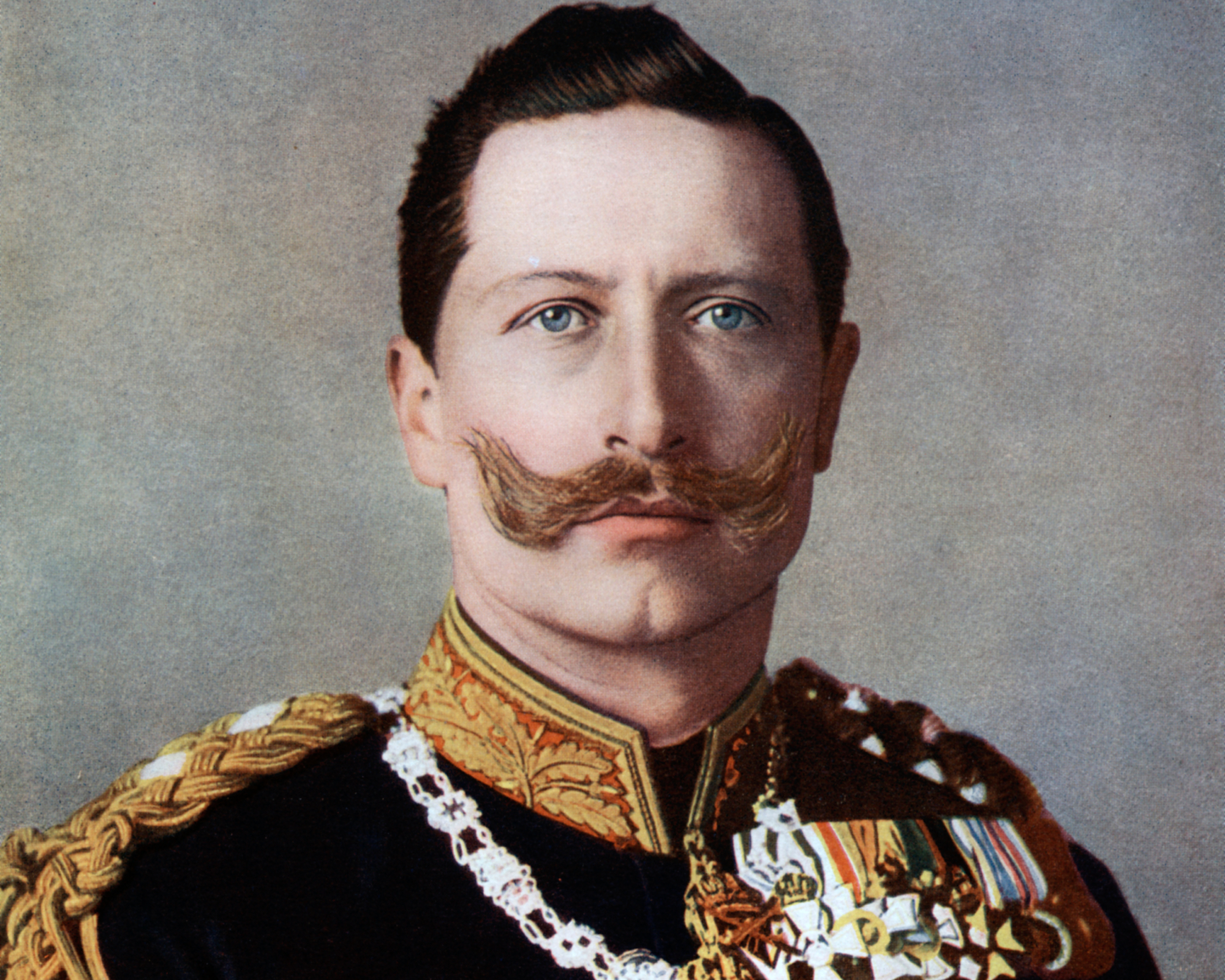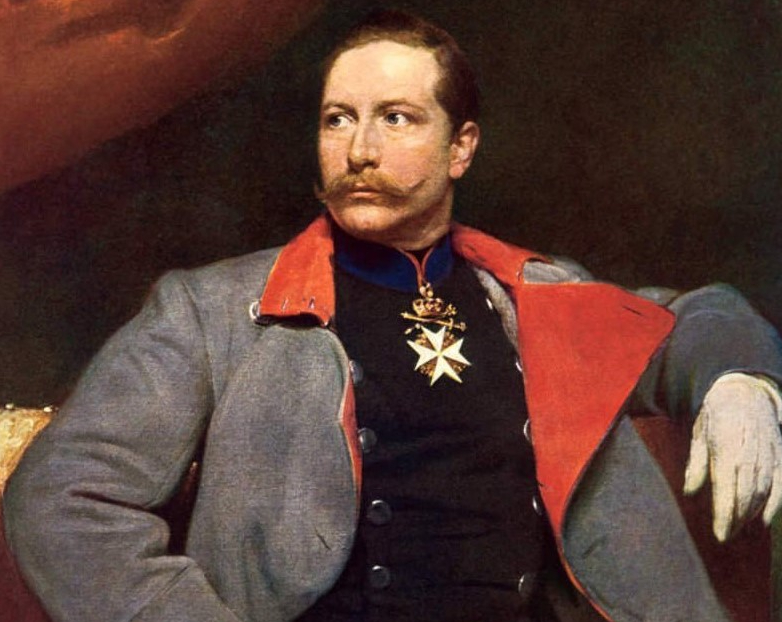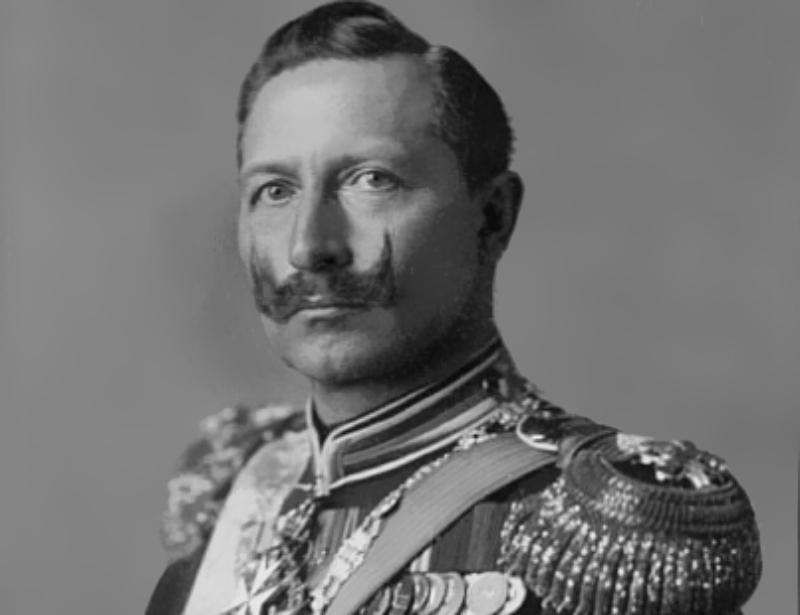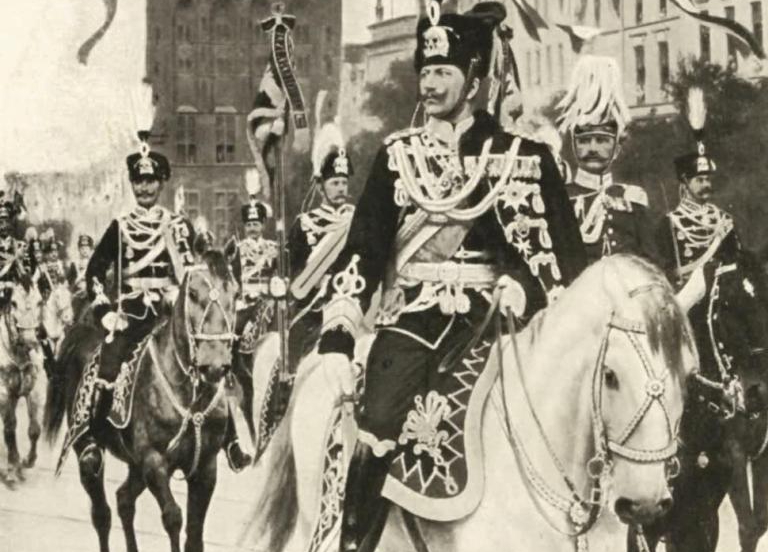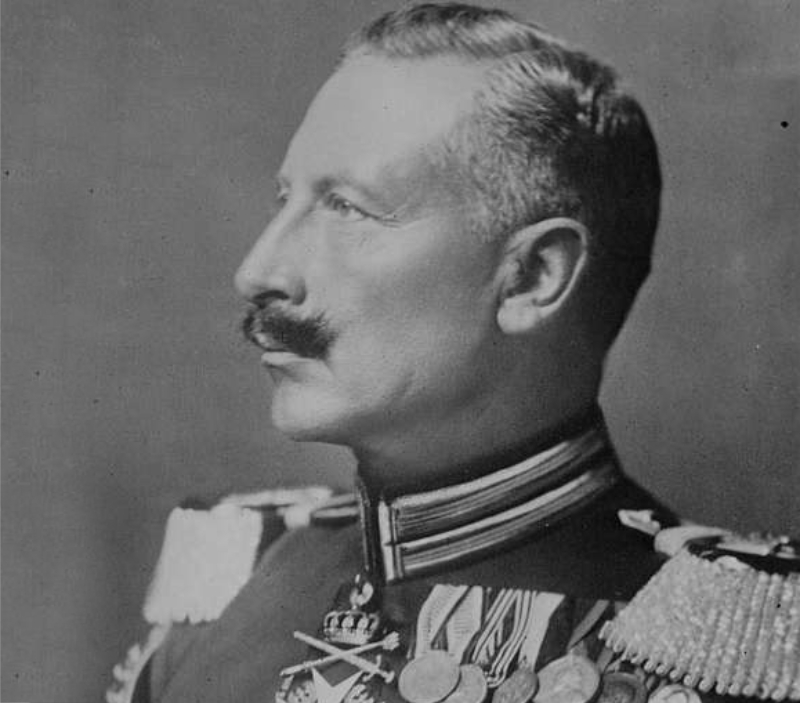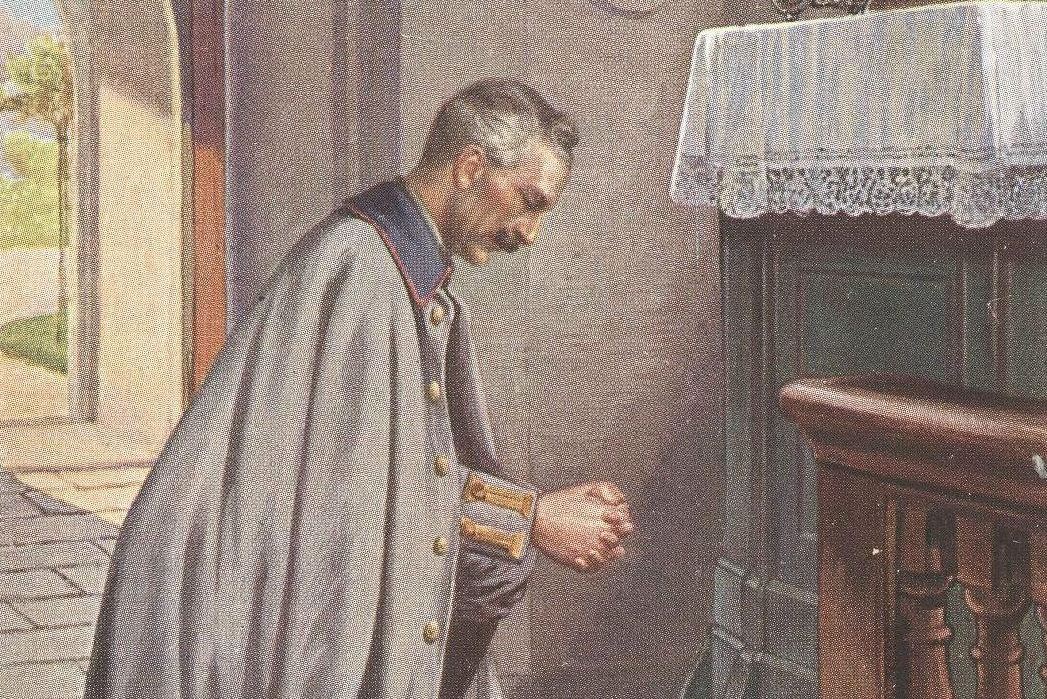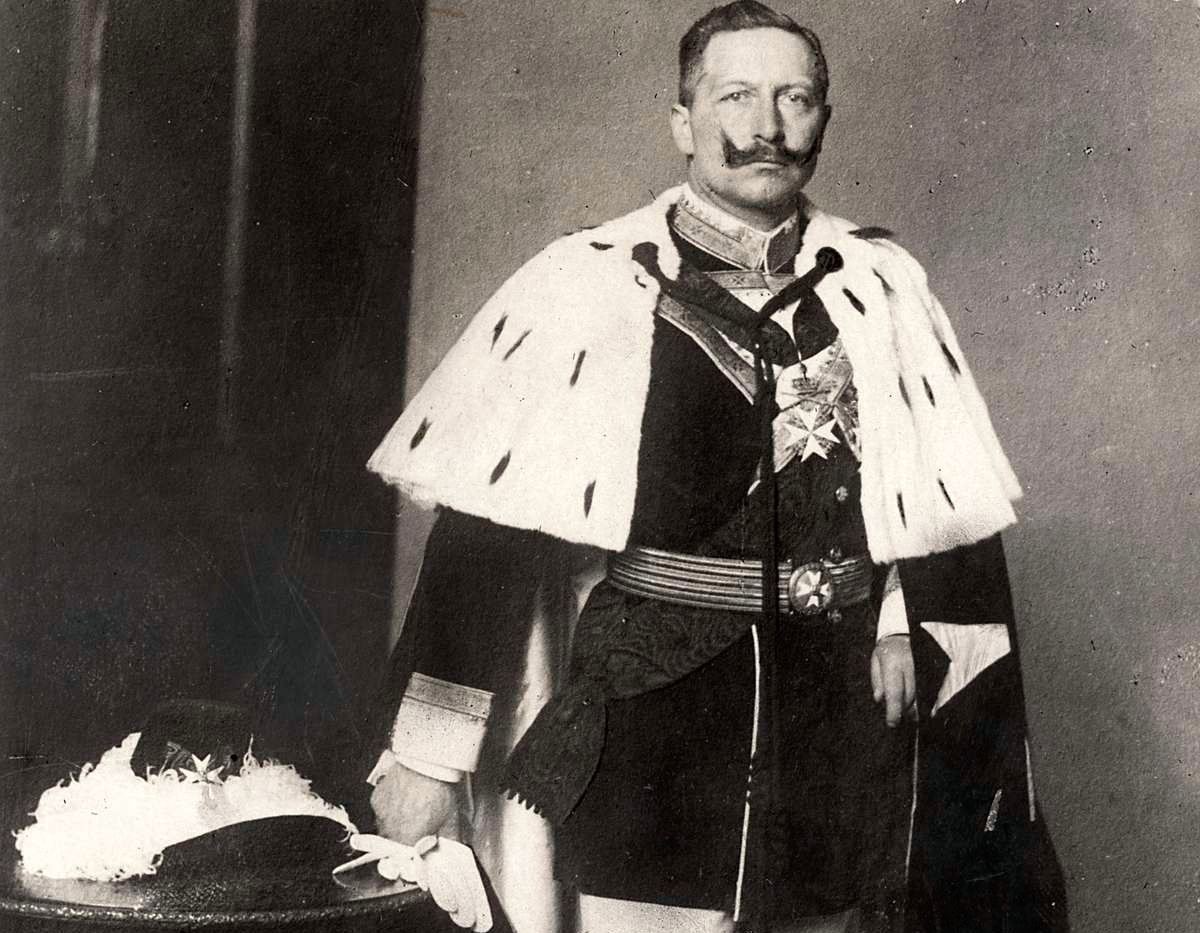The Last German Emperor
Kaiser Wilhelm II was the last Emperor of Germany. His delicate ego, intense jealousies, and unpredictable temper led straight to the calamitous events of WWI and the fall of the House of Hohenzollern.
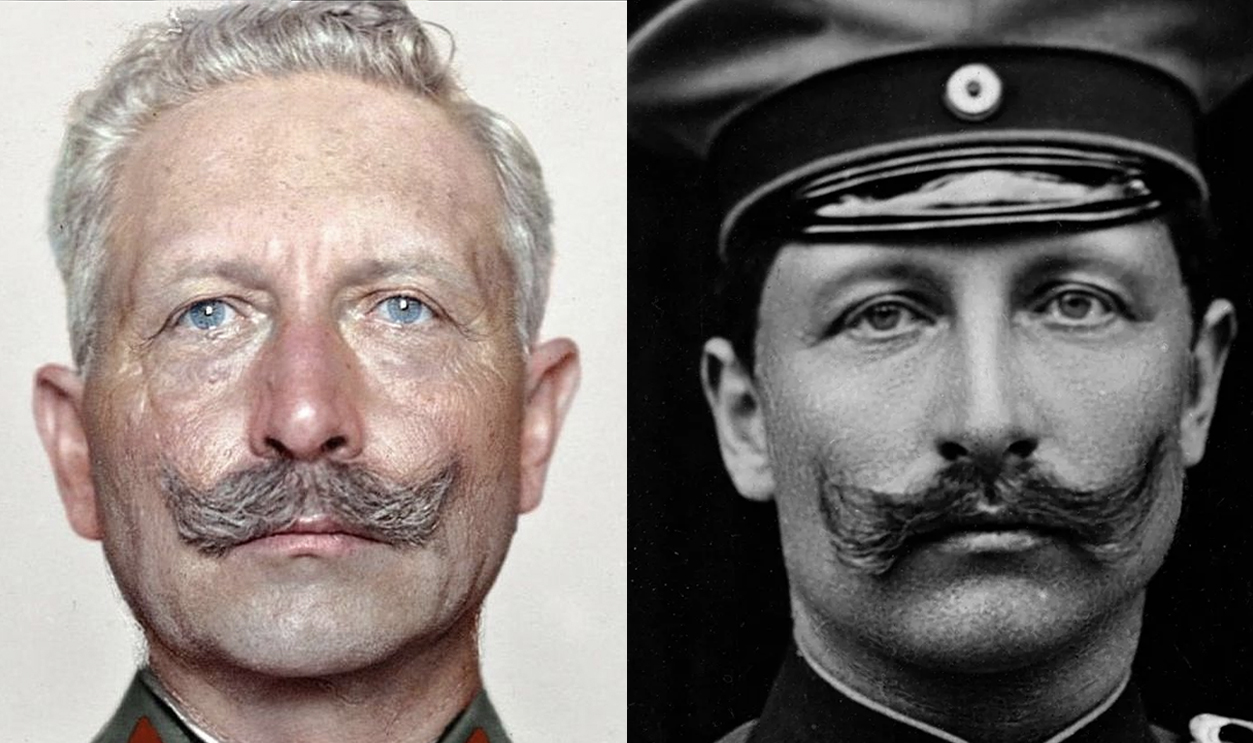
1. He Was The Curse Of The Continent
Kaiser Wilhelm II was born into one of the largest royal houses in all of Europe. But this prince's jealousy for his English cousins, his insecurity over his hideous deformity, and his famously mercurial personality made him a danger to the whole continent.
Even after he abdicated his throne, he suffered personal tragedies from which he would never recover.
2. He Had Family In High Places
Friedrich Wilhelm Viktor Albert, aka Kaiser Wilhelm II, was royally connected from birth. His mother, Victoria, Princess Royal, was the eldest child of Queen Victoria of the United Kingdom. He was, himself, the eldest of Queen Victoria’s staggering 42 grandchildren.
But, despite his royal lineage and connections, his childhood was anything but pleasant—in part due to his incredibly traumatic birth.
3. His Mother Almost Didn’t Survive Giving Birth
Wilhelm II had, to put it mildly, a difficult time coming into this world. During his mother’s labour, her doctor realized that the baby was in breech position—potentially a death sentence for both her and the baby in those days.
Though traumatic for both Wilhelm and his mother, both of them made it through in the end—but they weren't unscathed.
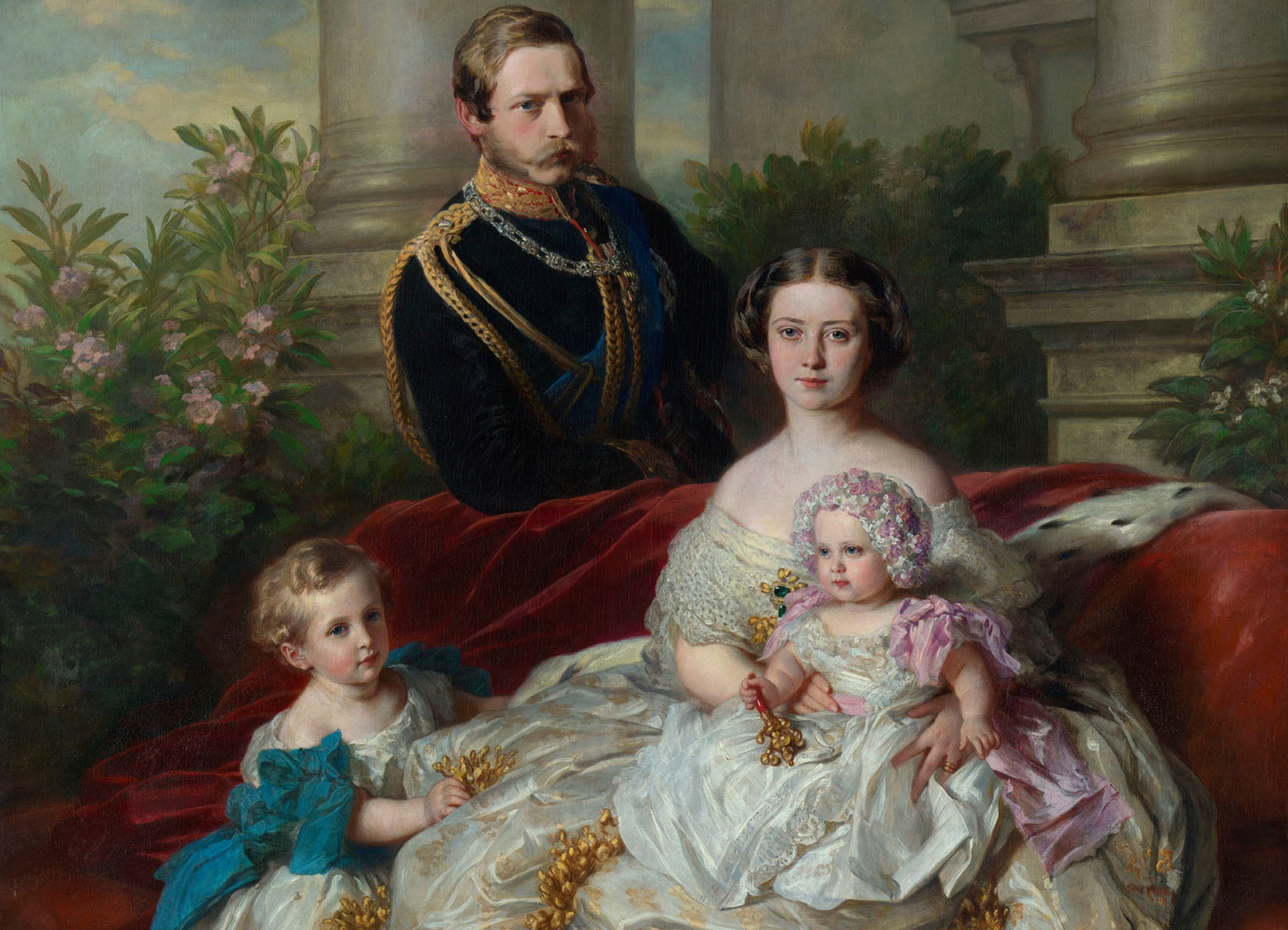 Franz Xaver Winterhalter, Wikimedia Commons
Franz Xaver Winterhalter, Wikimedia Commons
4. He Was Practically Stillborn
When he finally emerged from the birth canal, Wilhelm II was eerily silent. Much to the horror of everyone in the room, the blue-lipped young Hohenzollern prince was hypoxic. Desperate to revive the infant, and against the protestations from his parents, the doctor spanked Wilhelm II repeatedly until, miraculously, “a weak cry escaped his pale lips”.
But the damage was already done.
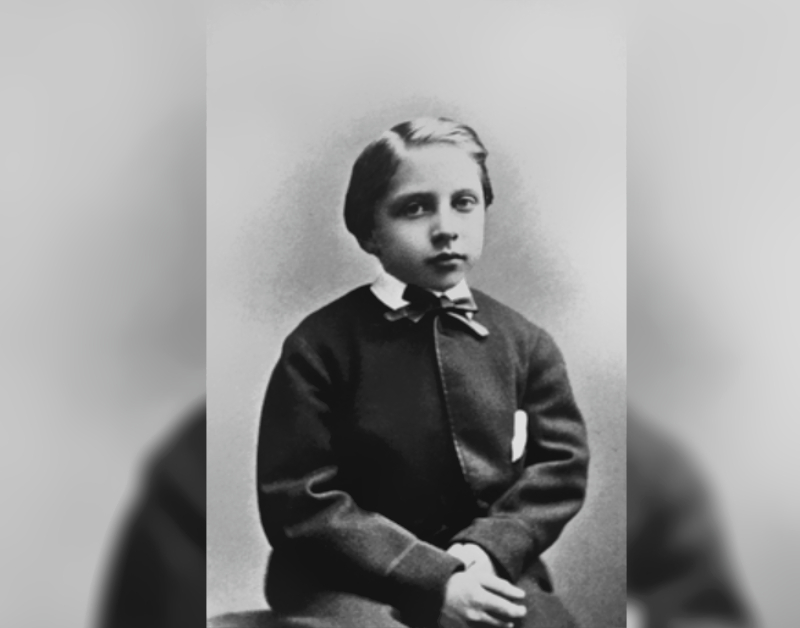 Heinrich Graf, Wikimedia Commons
Heinrich Graf, Wikimedia Commons
5. He Had A Hideous Deformity
During the difficult delivery, the doctor had inadvertently caused irreparable harm to Wilhelm II, resulting in a brutal lifelong deformity. In his efforts to remove the breech baby, the doctor had torn the infant’s brachial plexus (the nerves connecting the shoulder to the spinal cord).
The injury resulted in Erb’s palsy, leaving Wilhelm II’s left arm paralyzed and six inches shorter than his right arm. Not all of his injuries, however, were quite so obvious.
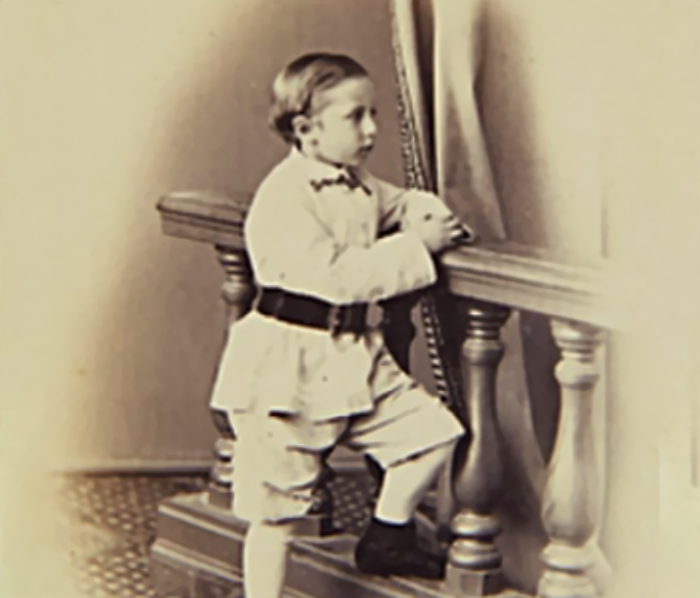 Unknown Author, Wikimedia Commons
Unknown Author, Wikimedia Commons
6. He Dressed Up Like Braveheart
In 1863, at just four years of age, Wilhelm II attended the wedding of his Uncle Bertie in England. The young Hohenzollern prince made his appearance wearing a full Highland costume, complete with a small dirk (a kind of ceremonial dagger).
As any four year old would, Wilhelm II became restless during the ceremony. But what he did next was anything but normal.
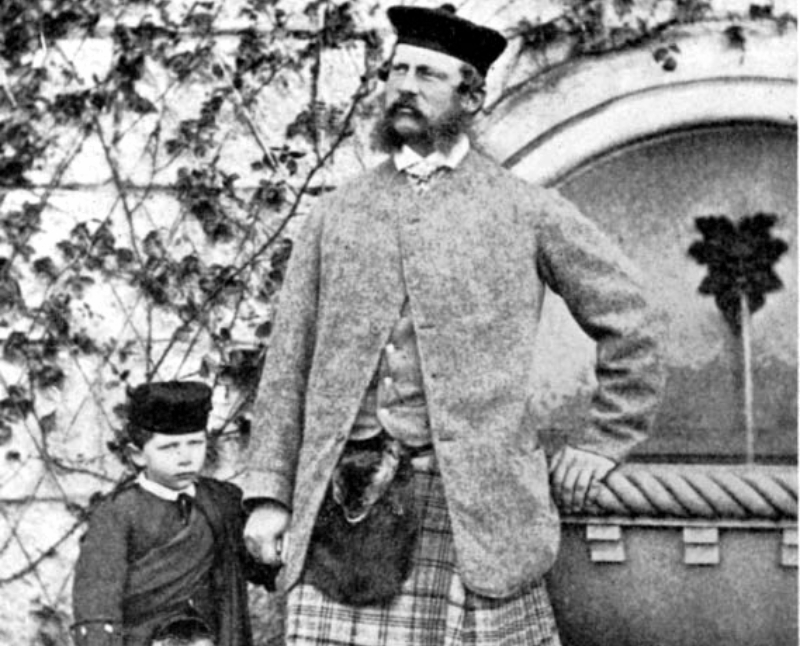 George Washington Wilson, Wikimedia Commons
George Washington Wilson, Wikimedia Commons
7. He Drew A Dagger On His Uncle
Wilhelm II got so unruly that his 18-year-old uncle, Prince Alfred, told him to quiet down and behave himself. That’s just when Wilhelm II gave the world a preview of his future belligerence: The young prince drew his dirk on Alfred.
Stunned, Alfred attempted to subdue the royal rugrat only to have the little monster bite him on the leg. But someone still worshiped the ground he walked on.
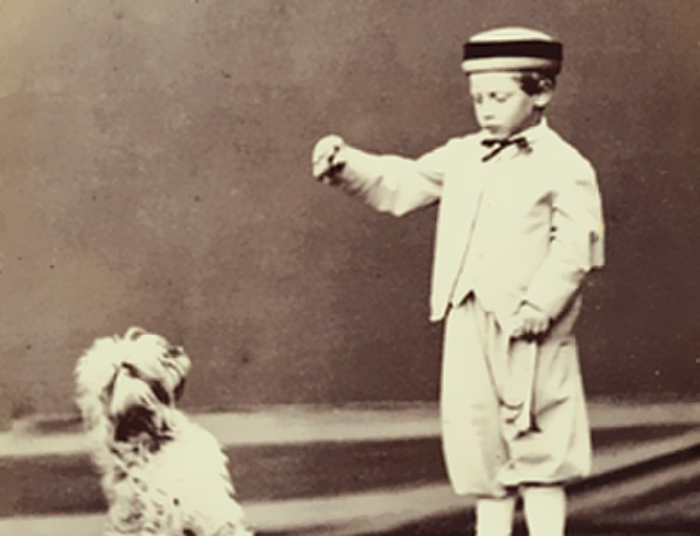 Hills & Saunders, Wikimedia Commons
Hills & Saunders, Wikimedia Commons
8. His Grandmother Doted On Him
Despite the growing knowledge of Wilhelm II’s abhorrent behavior and ill-temper, one (powerful) person remained blissfully unaware. His grandmother and the matriarch of just about every crown in Europe, Queen Victoria, never had a bad word to say about her eldest grandson. As far as she was concerned, Wilhelm II was “a clever, dear, good little child, the great favorite of my beloved Vicky”.
Maybe too much of a favorite…
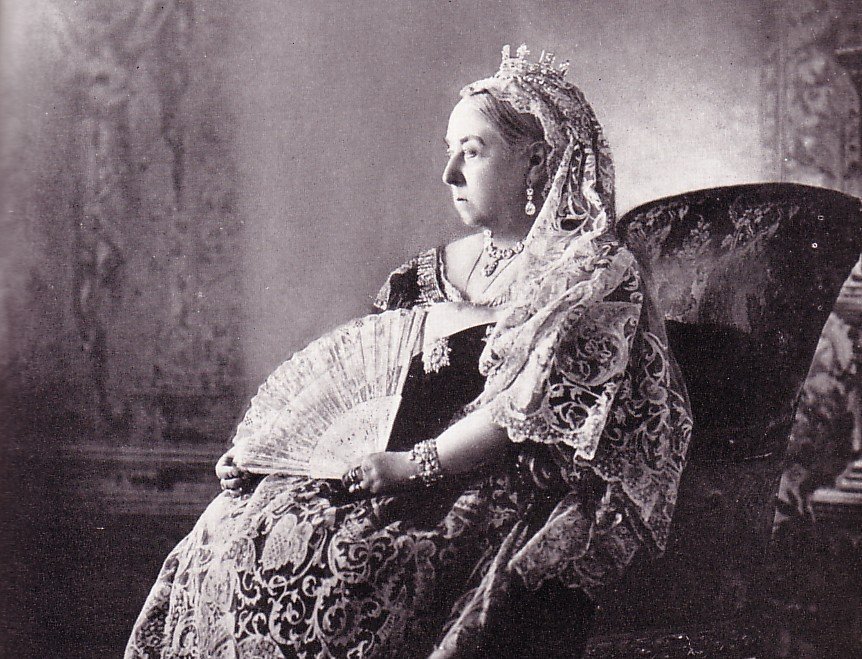 W. & D. Downey, Wikimedia Commons
W. & D. Downey, Wikimedia Commons
9. He Was Put Back On The Horse
Wilhelm II’s mother always blamed herself for her son’s deformity. Nevertheless, she insisted that the future Kaiser must appear strong and capable. Despite his protestations, she forced Wilhelm II to learn to ride a horse. In his poor condition, he fell off repeatedly, only to have his mother hoist him back in the saddle, weeping and in pain.
The ordeal drove a wedge between mother and son—and it was only going to get worse.
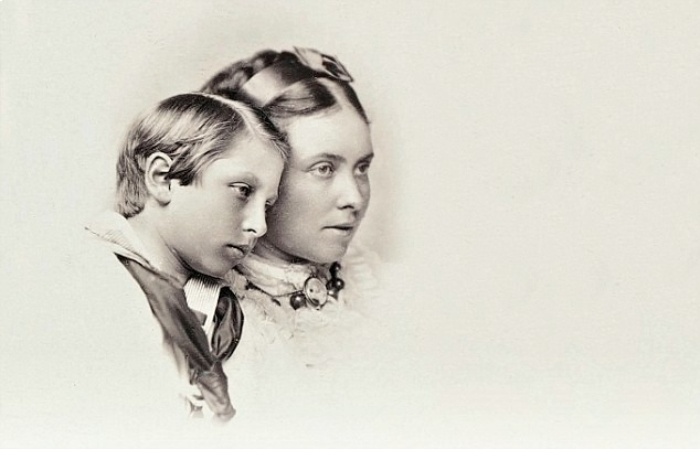 Unknown author, Wikimedia Commons
Unknown author, Wikimedia Commons
10. He Hated His Mother
From the time that he was six, Wilhelm II had a tutor, the 39-year-old teacher Georg Ernst Hinzpeter. Reflecting on the horse-riding incident, Wilhelm II later said, “Hinzpeter was really a good fellow. Whether he was the right tutor for me, I dare not decide. The torments inflicted on me, in this pony riding, must be attributed to my mother”.
Wilhelm grew closer to Hinzpeter, who began to poison him against his parents.
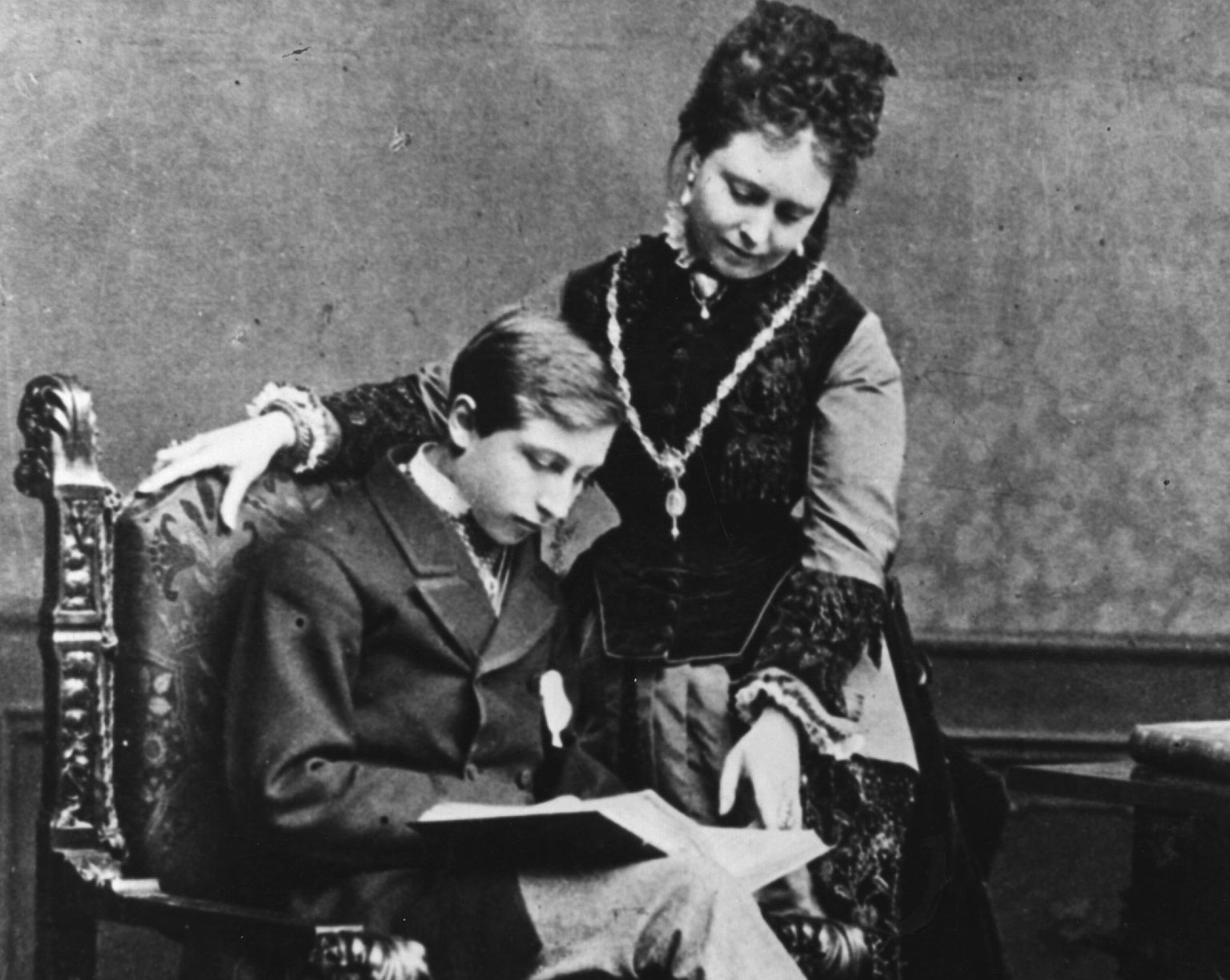 Unknown author, Wikimedia Commons
Unknown author, Wikimedia Commons
11. He Resented His Parents’ Britishness
Wilhelm II’s tutor had an outsized influence on him, indoctrinating him in the “Prussian” way of autocratic rule. Under this influence, Wilhelm II openly pushed back against his parents’—particularly his mother’s—liberal British values. As he grew older, he began to suspect that his parents were more British than German, and thus couldn't be trusted.
To be fair, he had good reason for suspecting them.
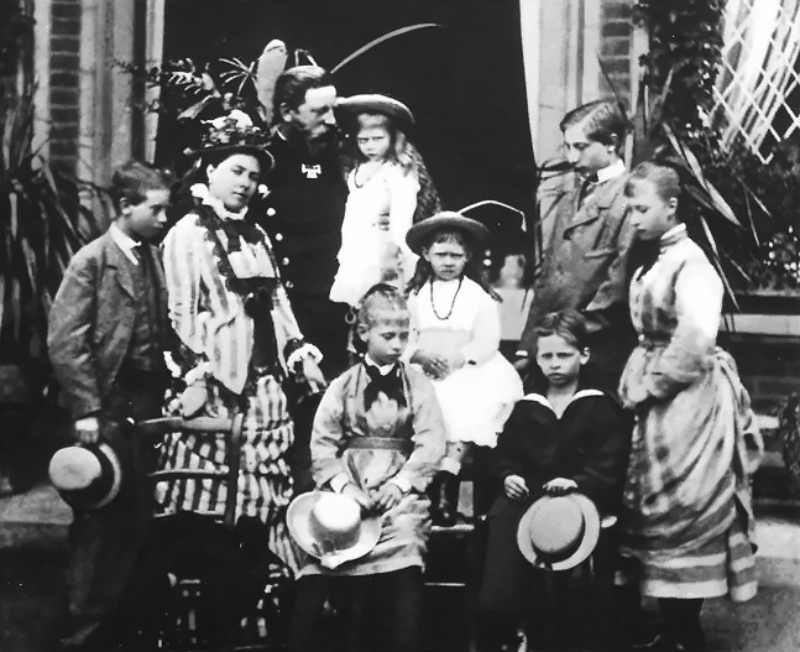 Unknown Author, Wikimedia Commons
Unknown Author, Wikimedia Commons
12. He Blamed His Mother For Everything
Wilhelm II’s deformity haunted him for his entire life. He had to pose strategically in paintings and pictures to conceal his left arm, often resting it on the hilt of a sword, or holding a cane. For this, he placed all of the blame on his mother. “An English doctor [ended] my father,” he fumed, “and an English doctor crippled my arm—which is the fault of my mother”.
He was about to find his real family.
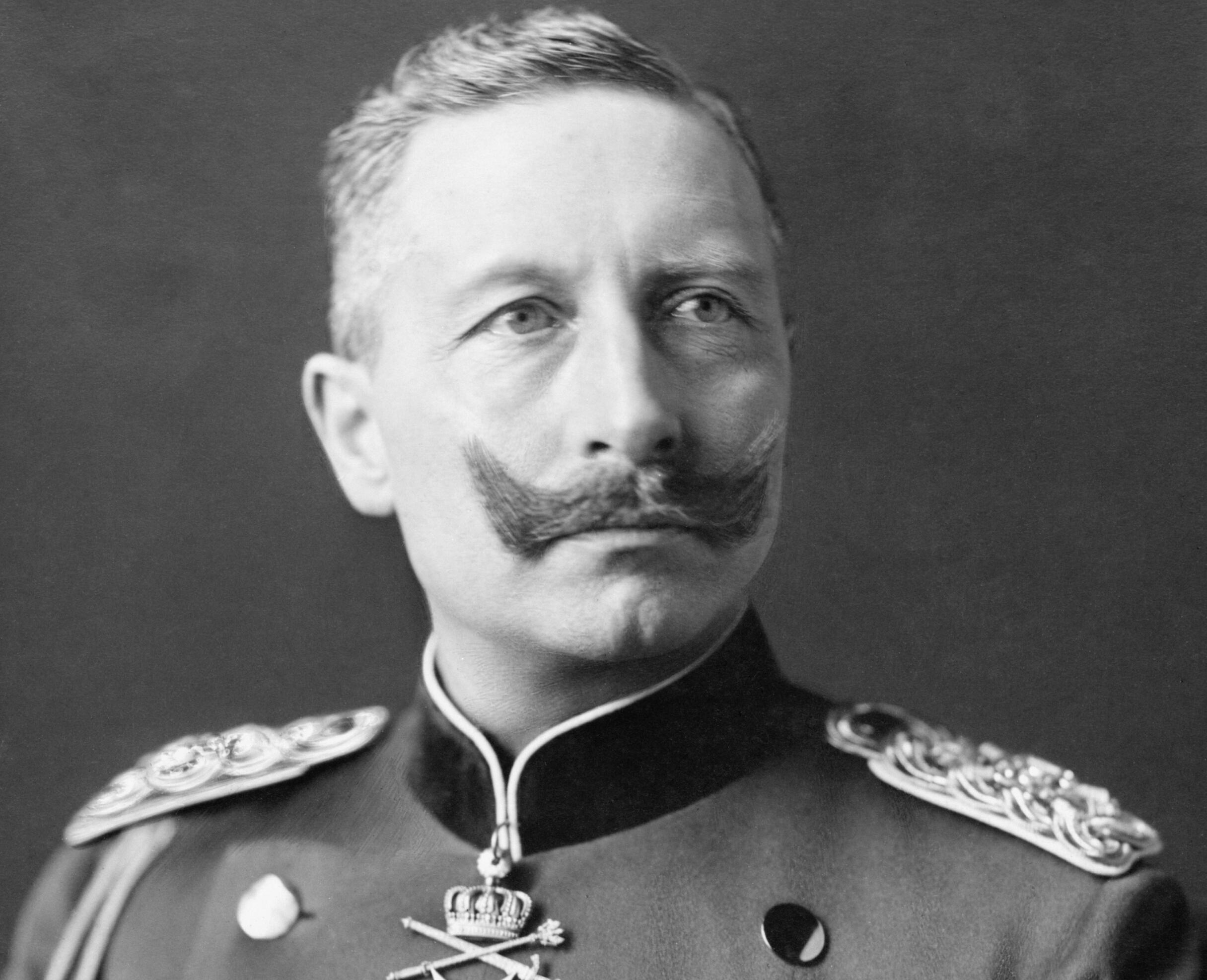 Studio of Thomas Heinrich Voigt, Wikimedia Commons
Studio of Thomas Heinrich Voigt, Wikimedia Commons
13. He Found His True Family
As he was nearing the crown, at 21, Wilhelm II joined the First Regiment of Foot Guards. It was there, amidst the strict, authoritarian, and hyper-masculine armed forces that Wilhelm II finally felt at home. “In the Guards,” he later recalled, “I really found my family, my friends, my interests—everything of which I had up to that time had to do without”.
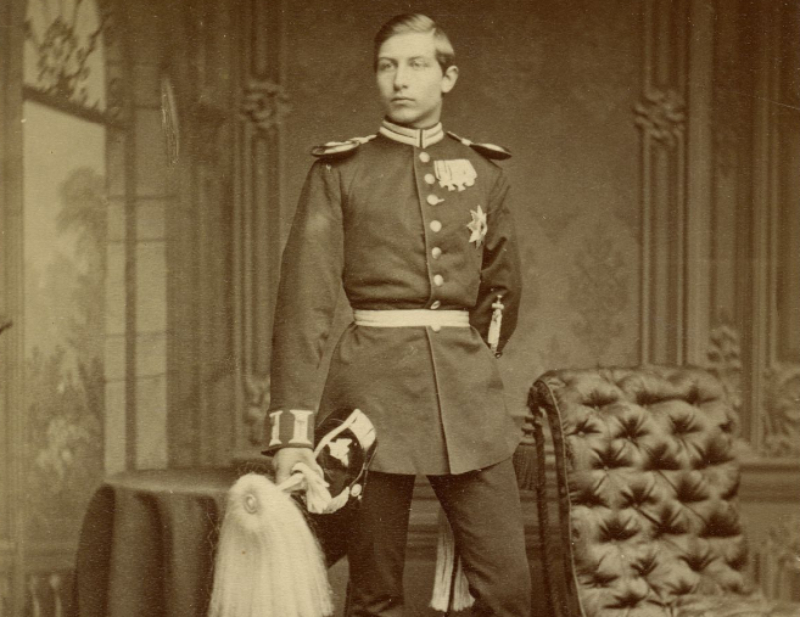 Emil Rothe, CC BY-SA 4.0, Wikimedia Commons
Emil Rothe, CC BY-SA 4.0, Wikimedia Commons
14. He Had Swagger And Style
Wilhelm II’s position within the Foot Guards as a lieutenant had a drastic impact on his personality. Despite his poor temper and awkward social manners, Wilhelm II had been “polite and agreeable”. However, once donned his martial uniform (that he almost never took off), he adopted the swagger and brusque tone of a Prussian officer.
But, despite his new appearance, he had a softer side as well.
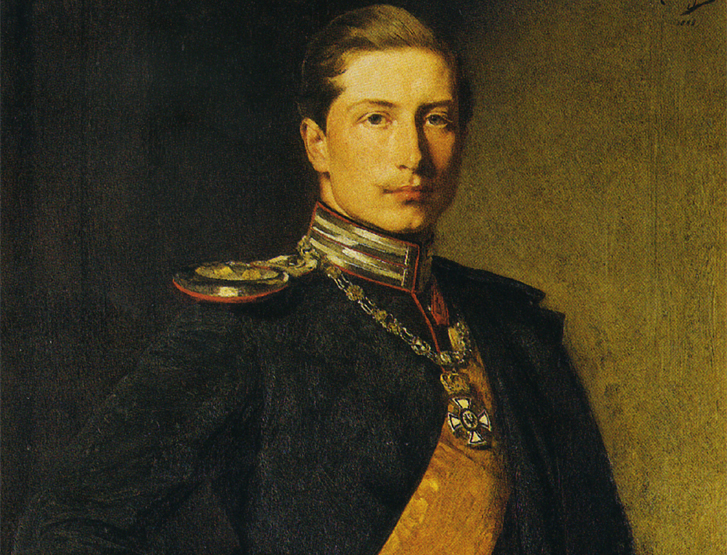 Heinrich von Angeli, Wikimedia Commons
Heinrich von Angeli, Wikimedia Commons
15. He Met The Girl Of His Dreams
In his youth, Wilhelm II had fallen in love with one of his (many) maternal first cousins, the Princess Elisabeth of Hesse-Darmstadt. He gushed over the young princess, saying that she was “exceedingly beautiful, in fact she is the most beautiful girl I ever saw”. Princess Elisabeth’s beauty seemed to have tamed Wilhelm II’s beast.
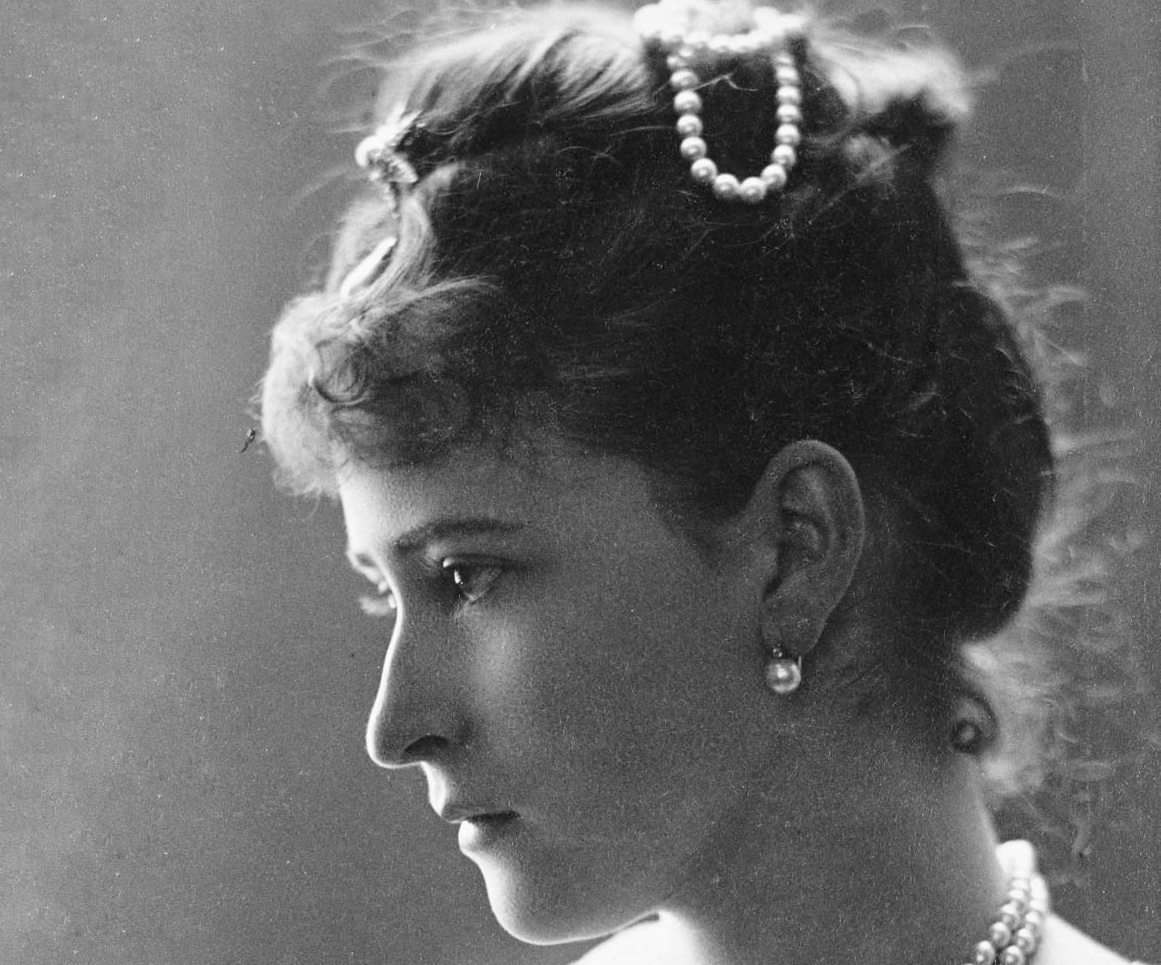 Hayman Seleg Mendelssohn, Wikimedia Commons
Hayman Seleg Mendelssohn, Wikimedia Commons
16. He Was A Poet
At just 16 years old, Wilhelm vowed that, if he lived long enough, he would marry her when she came of age (she was only 11 at the time). Even as he grew up, he didn't change his mind.
While attending Bonn University, Wilhelm II often snuck away and visited Princess Elisabeth under the guise of spending time with his Aunt Alice, all while writing countless love poems to her. Fate, however, had something crueler in store for him.
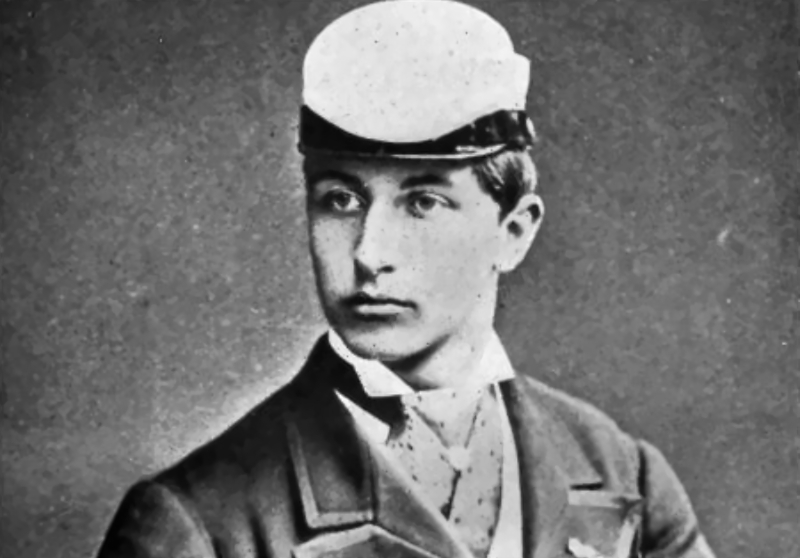 Unknown author, Wikimedia Commons
Unknown author, Wikimedia Commons
17. He Faced Rejection For The First Time
Finally, in 1878, Wilhelm II mustered up the courage to ask his younger cousin for her hand in marriage. For reasons that we may never know, Princess Elisabeth turned Wilhelm II down flat (Maybe his poems didn’t rhyme?). Then, she would later marry into the Russian imperial family instead, compounding his existing jealousies.
At least he still managed to find true love in the end.
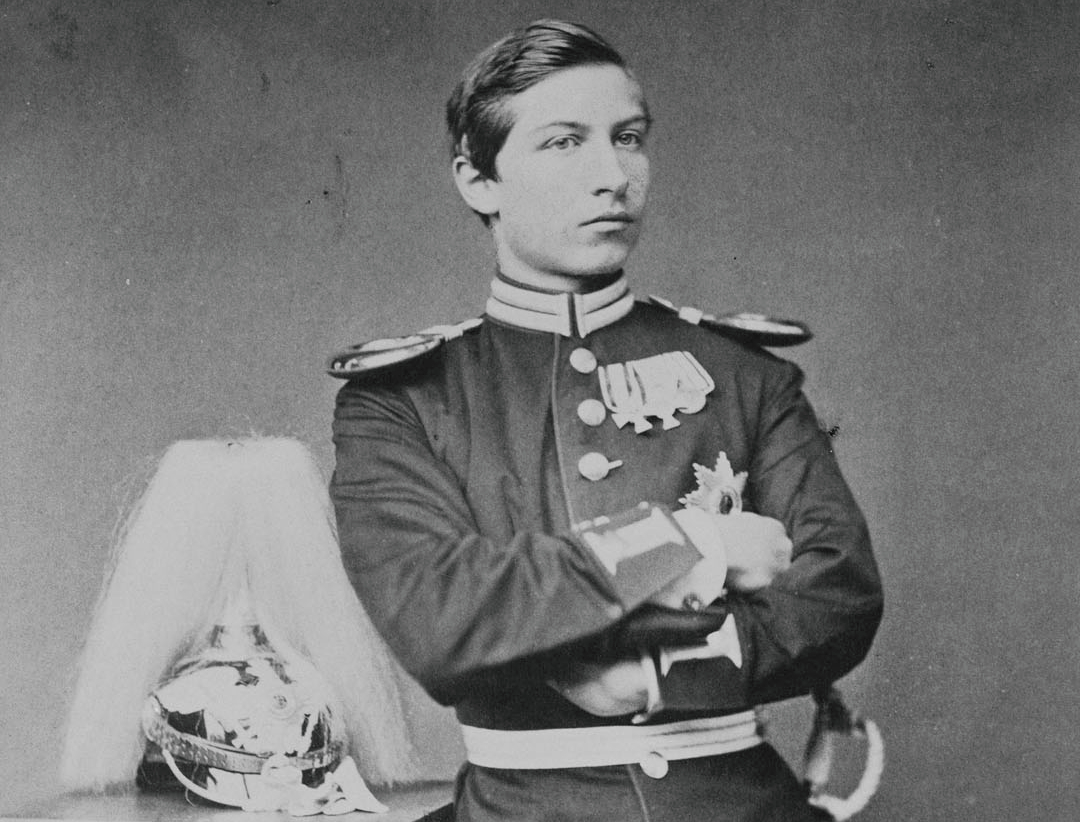 Unknown author, Wikimedia Commons
Unknown author, Wikimedia Commons
18. He Found His Rebound
Wilhelm II was left incensed at Elisabeth’s rejection and wanted to find another princess to prove his worth. In 1880, he fulfilled that wish when he became engaged to Princess Augusta Victoria of Schleswig-Holstein, aka “Dona”. However, his family objected to the match as, even though she was a princess, her father was merely a duke, not an actual sovereign.
For once, his stubbornness proved fruitful.
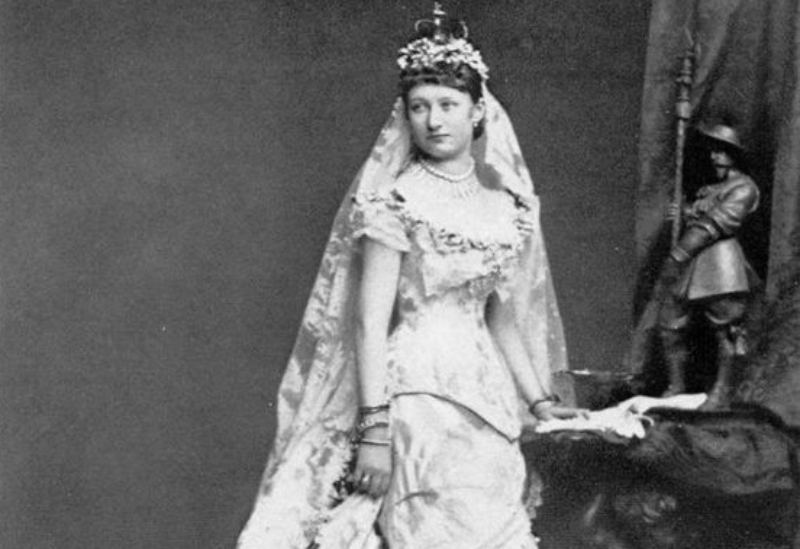 Unknown Author, Wikimedia Commons
Unknown Author, Wikimedia Commons
19. He Defied His Parents’ Wishes
Wilhelm II had at least one powerful person on his side: German Chancellor Otto von Bismarck supported the match for his own political reasons. He had, for years, been fuelling Wilhelm II’s alienation from his parents in the hopes that, when he ascended to the throne, he would be far more amenable to von Bismarck political goals.
Between Wilhelm II’s insistence on Dona and Bismarck’s political machinations, the marriage went ahead. The relationship between Wilhelm and his parents would never be the same.
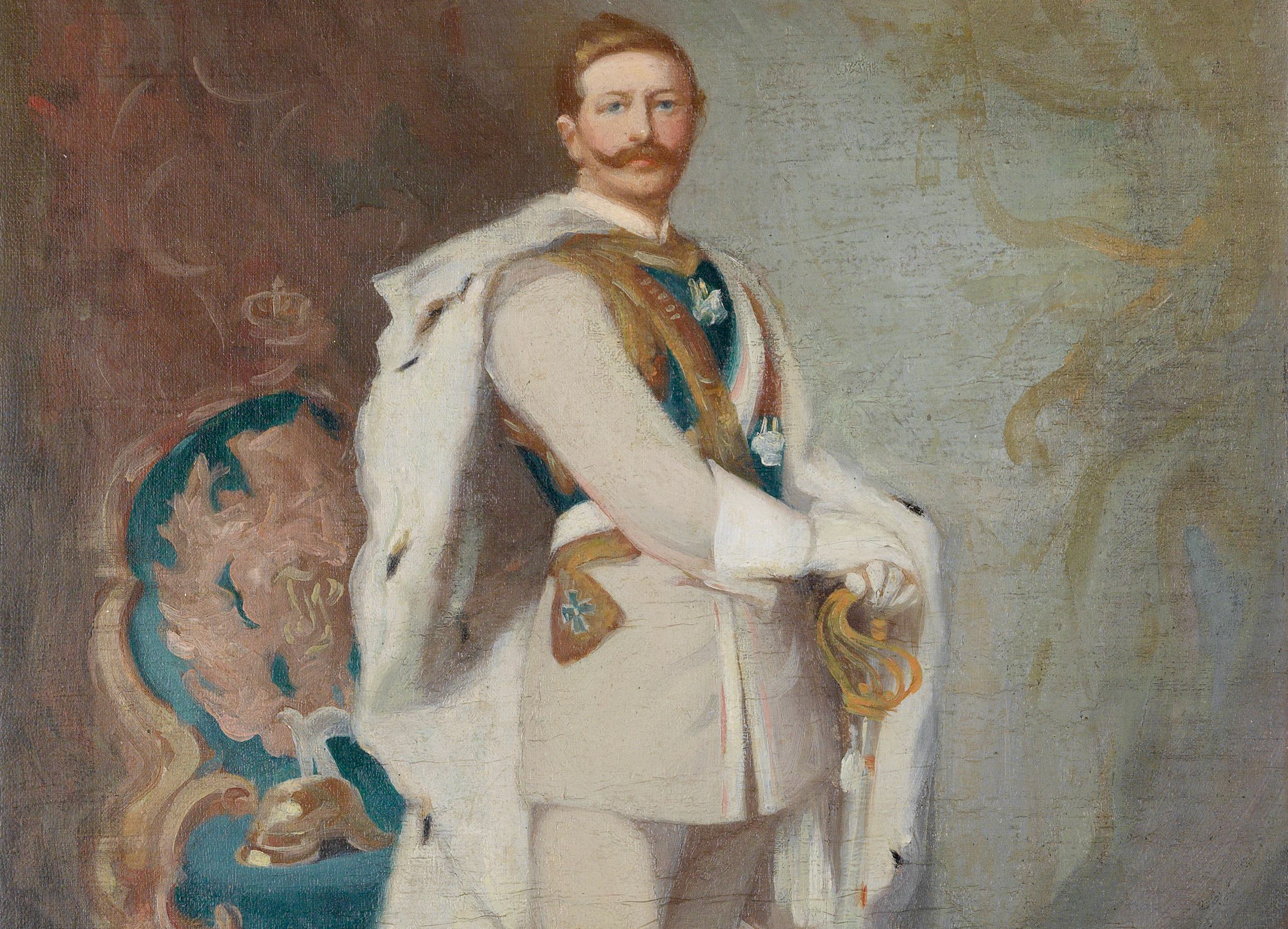 Emil Hünten, Wikimedia Commons
Emil Hünten, Wikimedia Commons
20. He Had A Happy Marriage
Wilhelm II and Dona had a happy marriage for the 40 years, between 1881 and Dona’s early demise in 1921. Together, they had seven children; six sons and a daughter. There was one thing that always brought them together: Dona loathed Wilhelm II’s mother almost as much as he did. And, given what happened next, Bismarck was about to seriously regret endorsing their marriage.
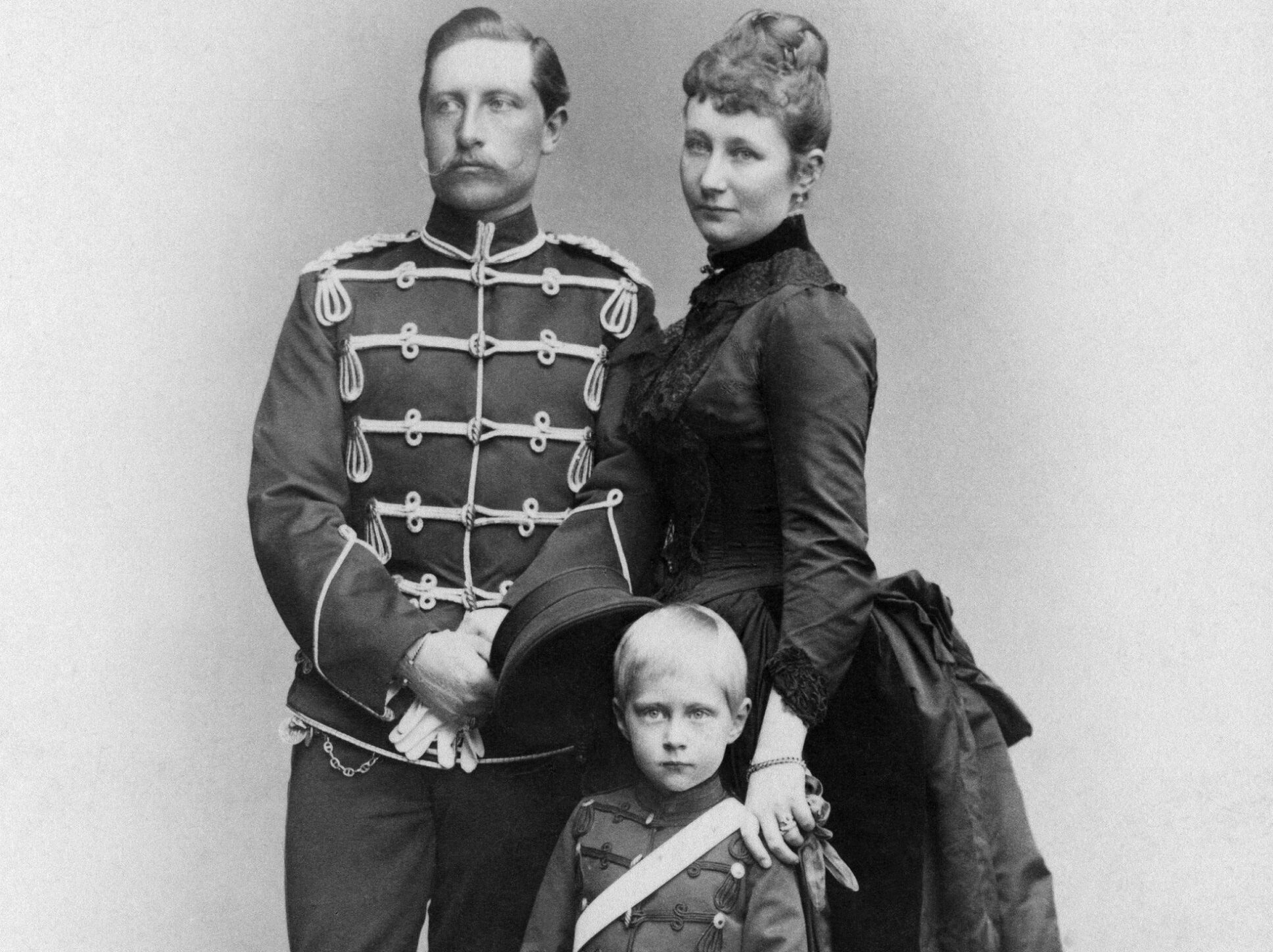 Unknown Author, Wikimedia Commons
Unknown Author, Wikimedia Commons
21. He Got The Crown
In early 1888, Wilhelm II’s father finally ascended to the throne. There was just one problem; he was severely ill. After just 99 days as Kaiser, Wilhelm II’s father succumbed to throat cancer, paving the way for Wilhelm II to claim what was his: the German Empire.
Unfortunately, there was one man—and a continent—standing in his way.
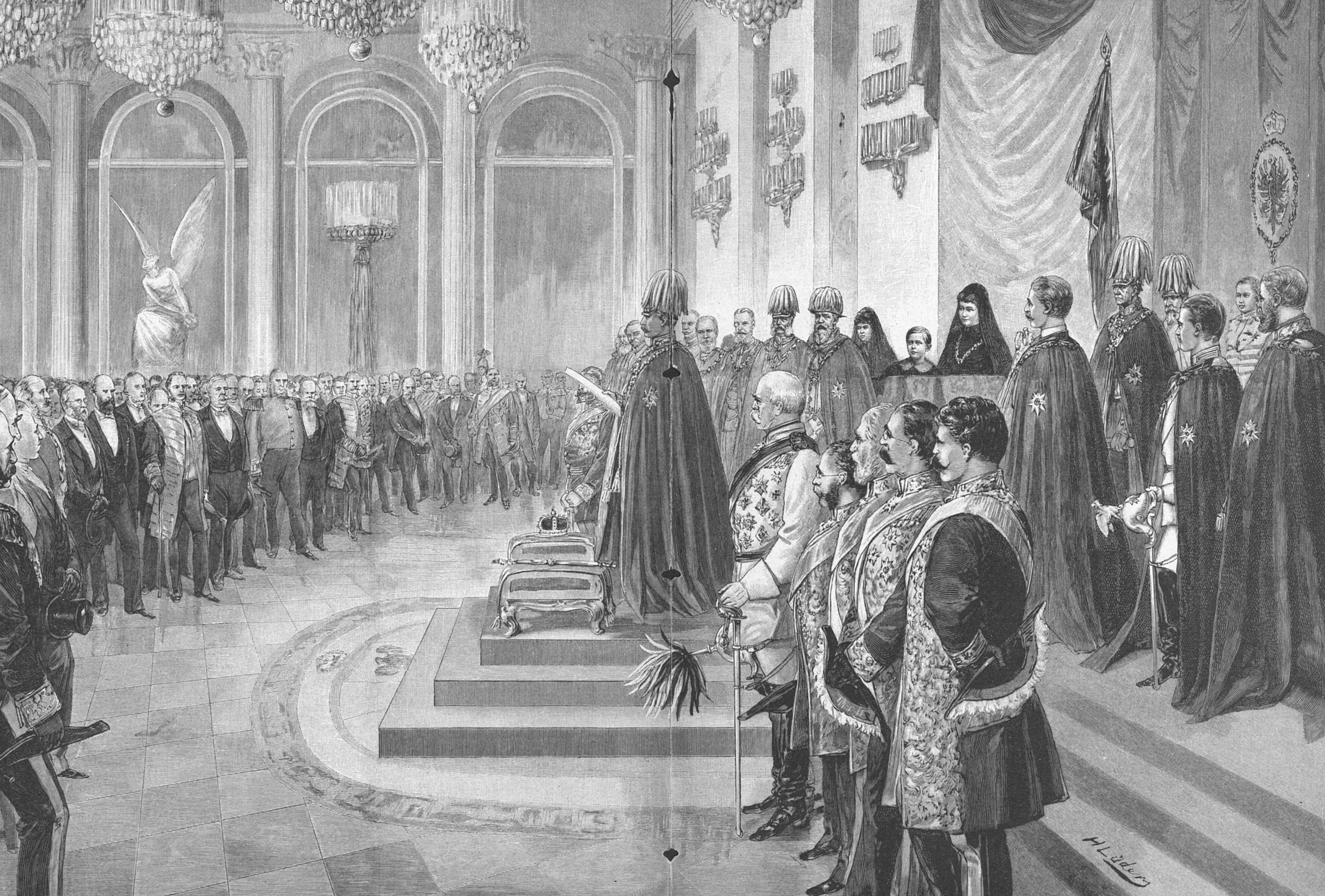 Unknown Author, Wikimedia Commons
Unknown Author, Wikimedia Commons
22. He Wanted Everything His Way
From the second the imperial crown touched his head, Wilhelm II was determined to “rule as well as reign”. For Bismarck, who had been Chancellor under Wilhelm II’s two predecessors, this was a departure. Bismarck had hoped that his years of influencing Wilhelm II would make him easy to manipulate as Kaiser.
He was in for a rude awakening.
23. He Was Too Tough For The Iron Chancellor
Almost as soon as he ascended to the throne, Wilhelm II clashed with the Iron Chancellor. Wilhelm II considered Bismarck’s foreign policy to be too weak and “careful”. The new Kaiser imagined a more muscular German Empire. “That young man,” Bismarck lamented, “wants [conflict] with Russia, and would like to draw his sword straight away if he could. I shall not be a party to it”.
He wouldn’t have to.
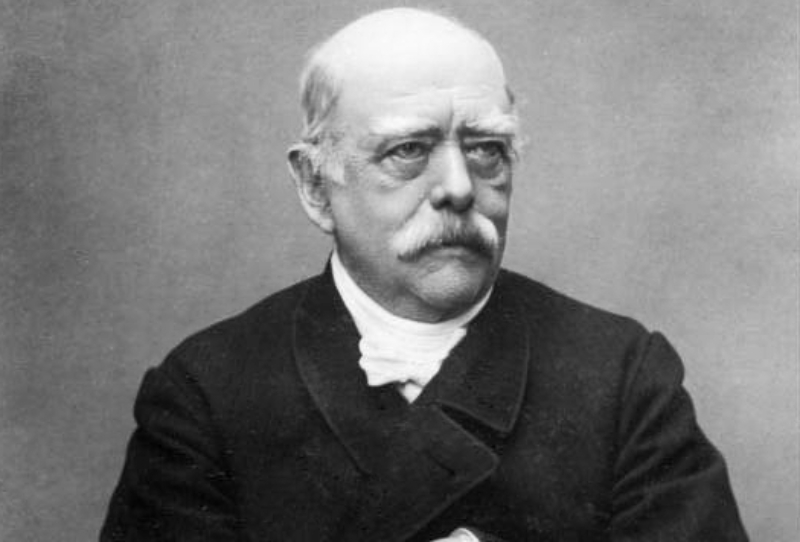 Bundesarchiv Bild, CC BY-SA 3.0 DE, Wikimedia Commons
Bundesarchiv Bild, CC BY-SA 3.0 DE, Wikimedia Commons
24. He Stormed Out
After Bismarck attempted to undermine Wilhelm II by forming a new coalition, the new Kaiser met with the Iron Chancellor at his estate. No one knows exactly what the two hotheads said to each other, but the explosive outcome left little to the imagination. Wilhelm II stormed out of the meeting in a huff while Bismarck wrote a blistering letter of resignation.
There would be no one standing between Wilhelm II’s erratic behavior and an unsuspecting continent.
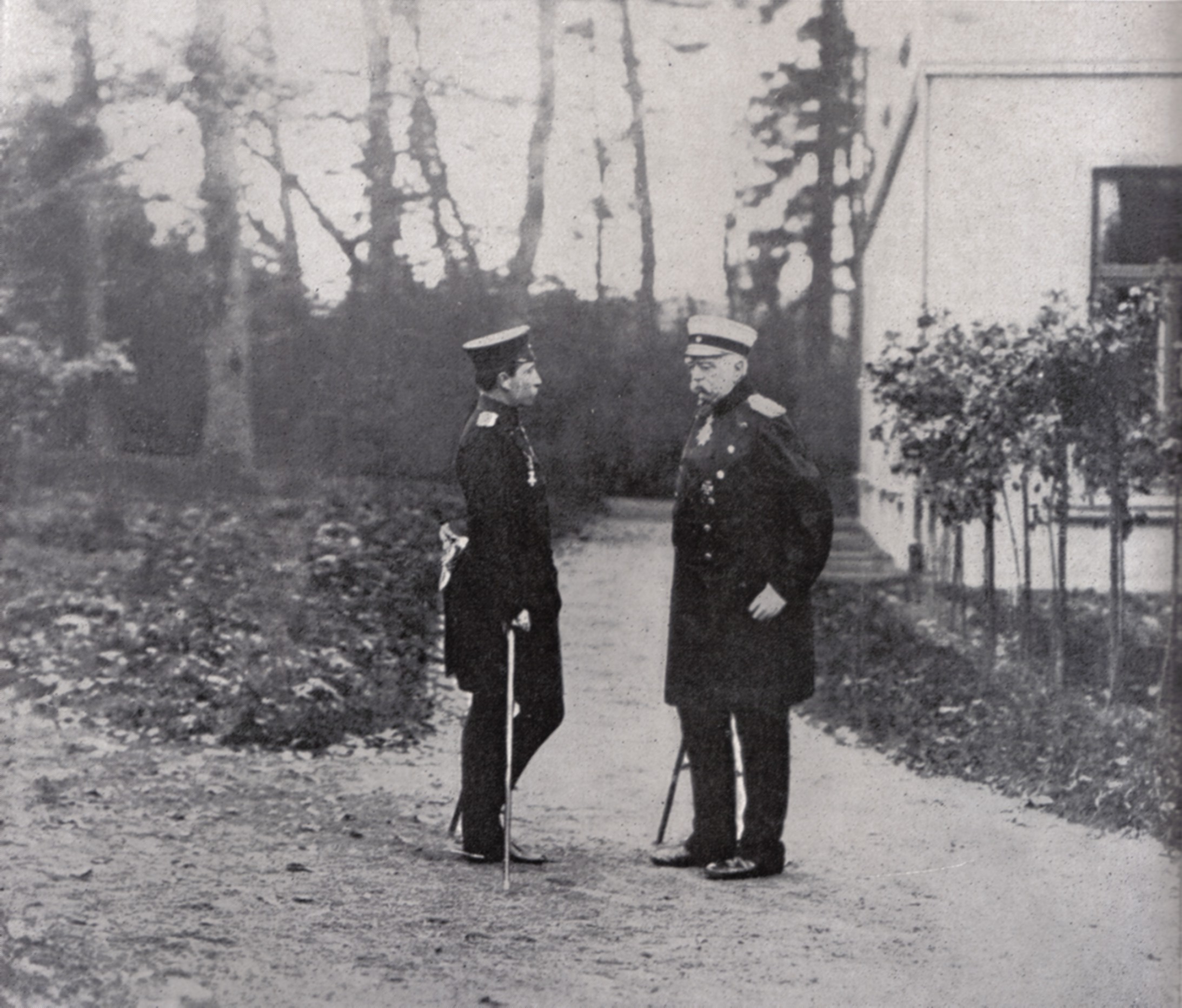 Unknown Author, Wikimedia Commons
Unknown Author, Wikimedia Commons
25. He Internalized His Hatred
The historian David Fromkin pointed out the internal struggle that tore Wilhelm II apart his whole life: “From the outset, the half-German side of him was at [odds] with the half-English side. He was wildly jealous of the British, wanting to be British, wanting to be better at being British than the British were, while at the same time hating them and resenting them because he never could be fully accepted by them”.
Unless he could build a better navy. That, at least, is what he thought.
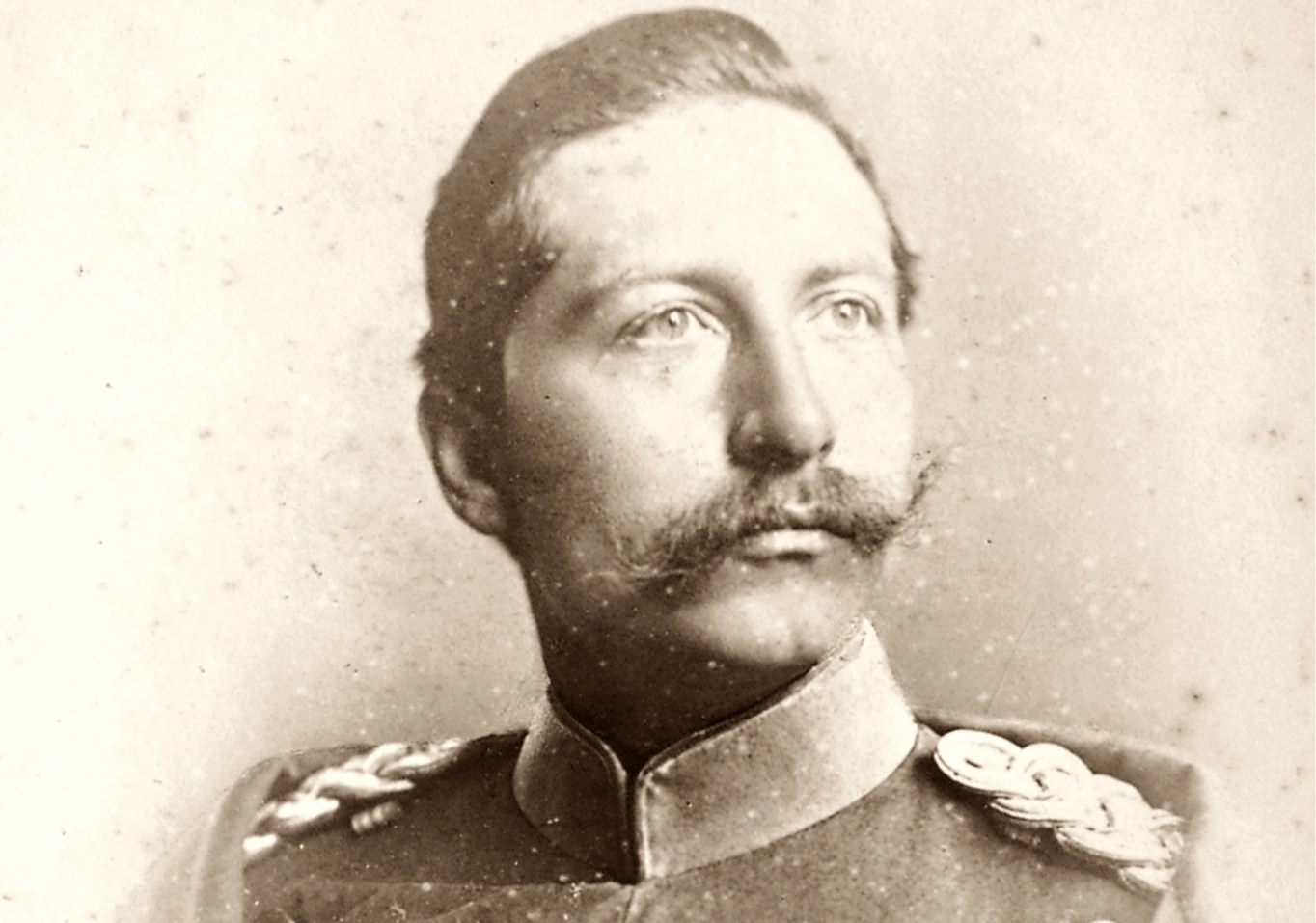 Viktor Scheurich, Wikimedia Commons
Viktor Scheurich, Wikimedia Commons
26. He Just Wanted A Bigger Boat
As a child, Wilhelm II had confided to his uncle, the Prince of Wales, that what he wanted more than anything was a “fleet of my own some day”.
So, when the British Navy upstaged his meagre German fleet at Queen Victoria's Diamond Jubilee, the new Kaiser Wilhelm II became determined to outdo his cousins, sparing no expense to outshine his British cousins.
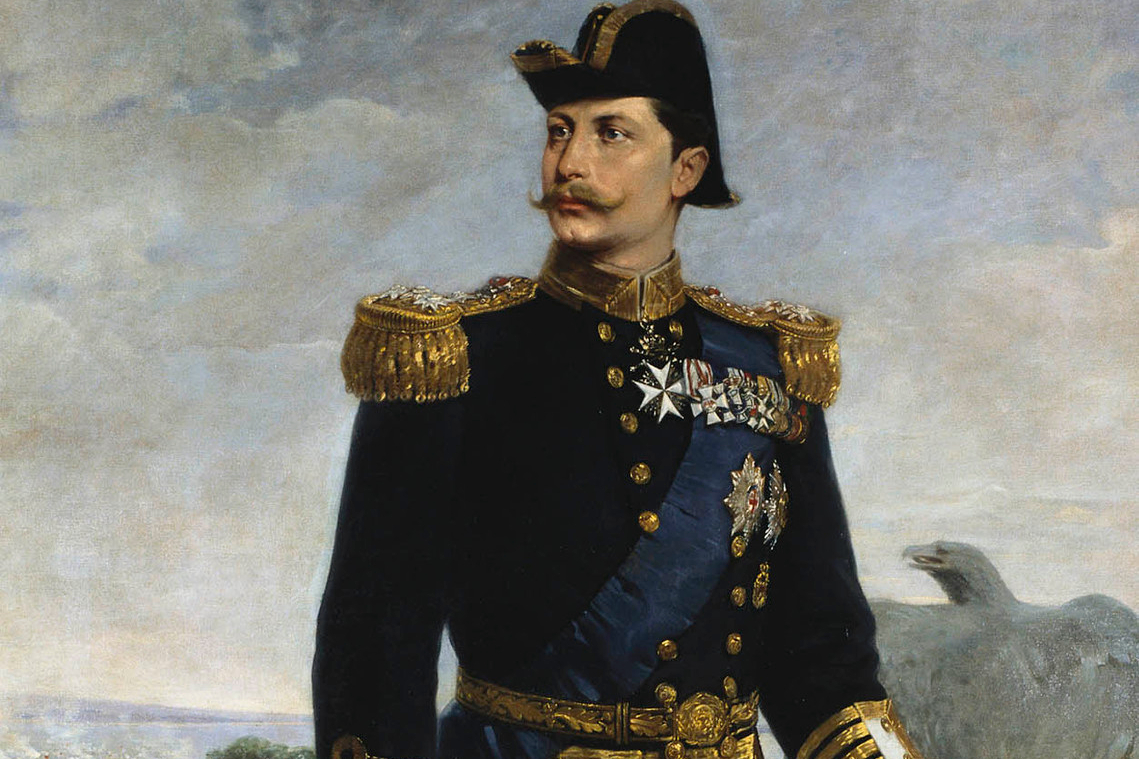 Rudolf Wimmer, Wikimedia Commons
Rudolf Wimmer, Wikimedia Commons
27. His Family Never Respected Him
Despite Wilhelm's envy for the British side of his family, Queen Victoria always treated him with courtesy and tact. The same, however, could not be said about his other British relatives. In particular, his Uncle Bertie—the future King Edward VII—refused to pay Wilhelm II the proper respects, even after he became Kaiser, prompting Wilhelm II to refer to him as “the old peacock”.
But even bigger family feuds and scandals loomed—some that even threatened his reign.
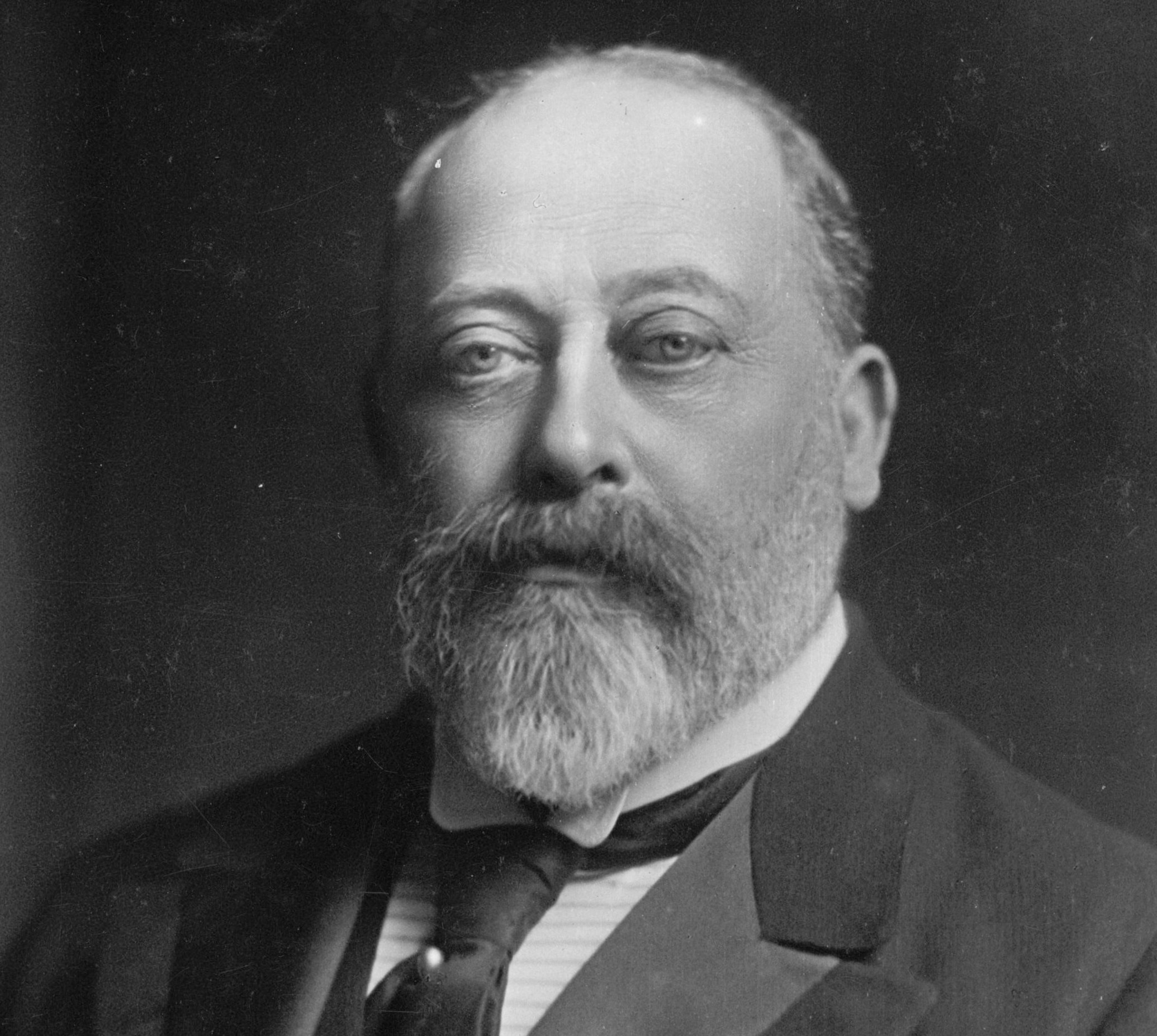 W. & D. Downey, Wikimedia Commons
W. & D. Downey, Wikimedia Commons
28. His Sister Shocked Him
Shortly after he ascended, Wilhelm II’s sister, Sophia of Prussia, married the heir apparent to the throne of Greece. But she caused a stir when, a year later, she announced that she would be converting from Lutheranism to Greek Orthodoxy.
The shocking move infuriated Wilhelm II—but no one could have predicted how dramatically he would overreact.
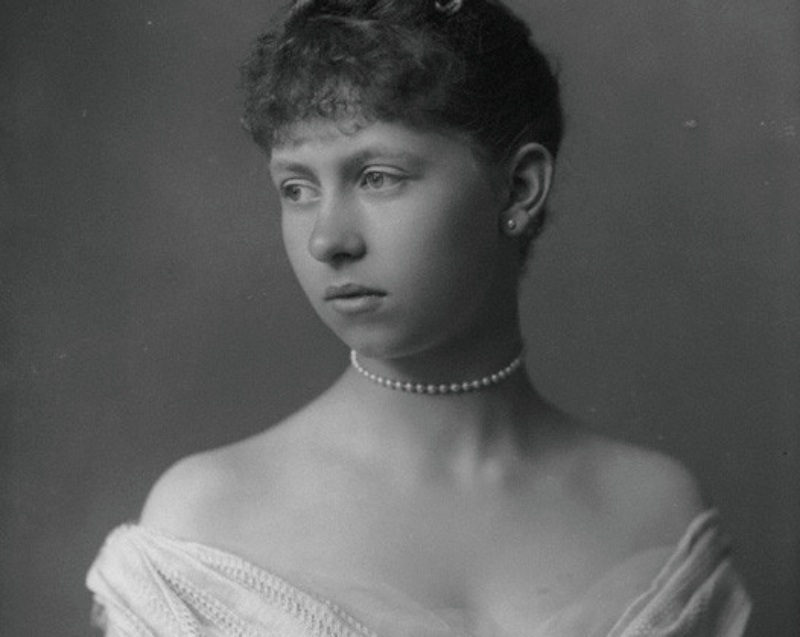 Alexander Bassano, Wikimedia Commons
Alexander Bassano, Wikimedia Commons
29. He Wanted To Exile His Sister
Upon hearing about Sophia’s intention to convert to Greek Orthodoxy, a heavily pregnant Dona summoned her. She conveyed to Sophia that Wilhelm II would not tolerate her conversion and said that he would go so far as to ban her from Germany.
When Sophia replied coolly that it wasn’t any of her business, Wilhelm's wife completely lost it—with tragic consequences.
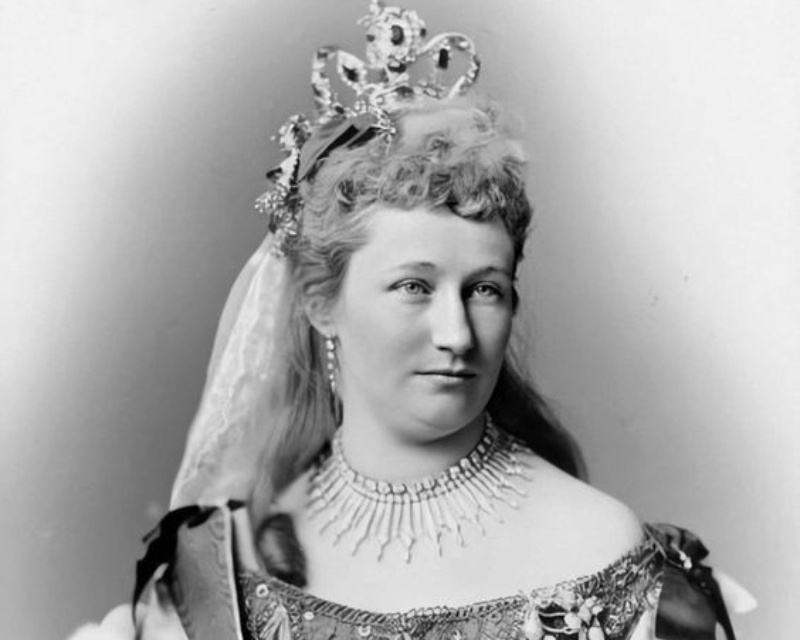 Unknown Author, Wikimedia Commons
Unknown Author, Wikimedia Commons
30. He Accused His Sister Of Having Blood On Her Hands
Sophia’s cool defiance sent Dona into an apoplectic fit. Her hysterics were so intense that she went into early labor with her youngest son, Prince Joachim. Wilhelm II wrote to their mother saying that, if his infant son didn’t survive, his blood would be on Sophia’s hands.
Thankfully, the boy survived—but Wilhelm should have been more concerned about his own life.
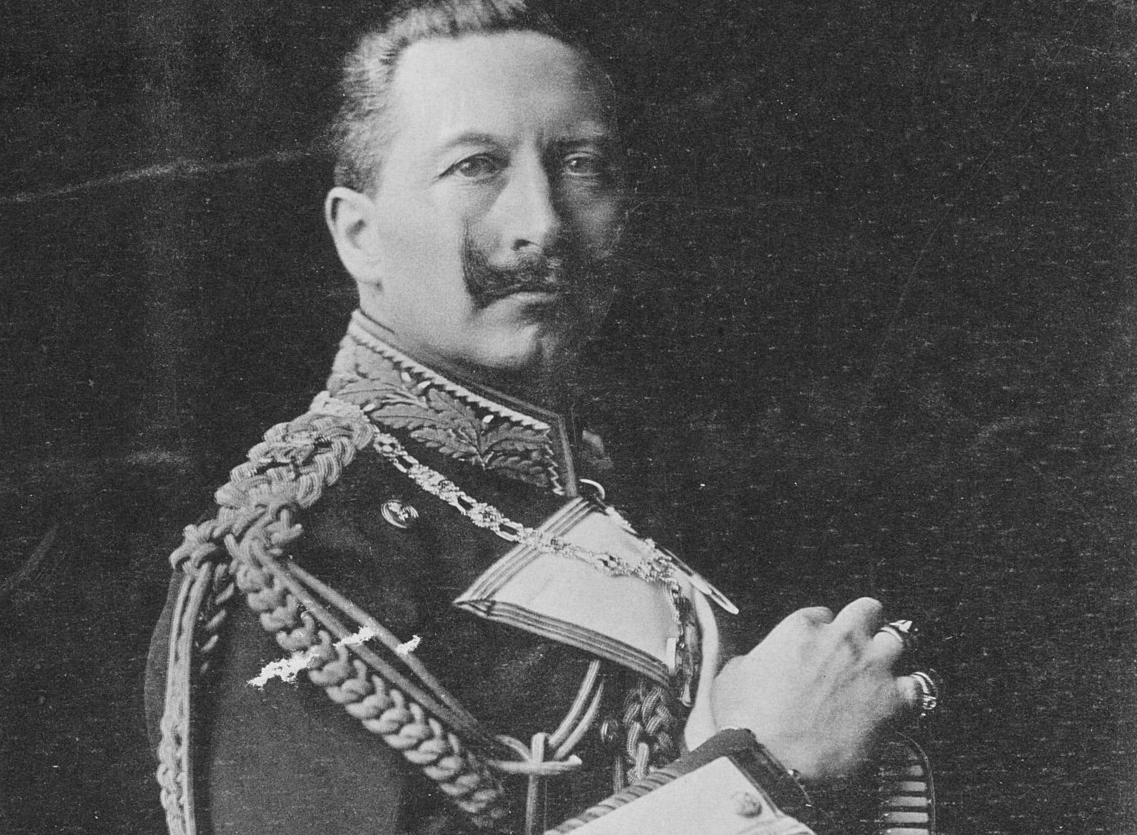 Unknown Author, Wikimedia Commons
Unknown Author, Wikimedia Commons
31. He Survived An Attempt On His Life
In March 1901, during a visit to Bremen, Wilhelm II almost had his number punched. While riding in a coach to the railway station, a sharp iron object came flying at his face. The object struck him below his left eye, leaving a gaping wound an inch and a half long.
What was even more shocking, however, was Wilhelm II’s reaction to the attempt on his life.
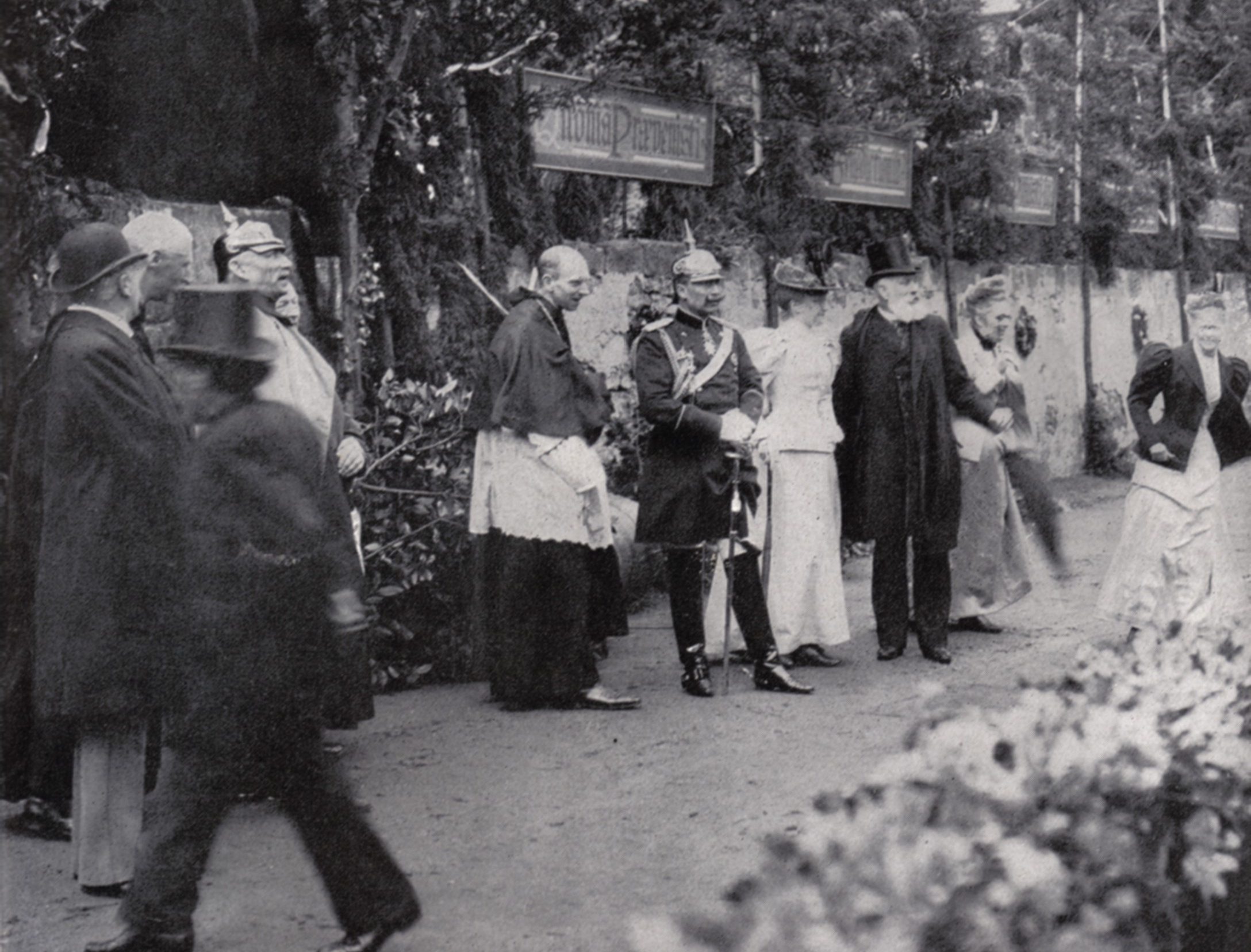 Unknown Author, Wikimedia Commons
Unknown Author, Wikimedia Commons
32. He Didn’t Even Notice
One of the witnesses to the incident, the Chief of the Naval Ministry, recalled Wilhelm II’s curiously calm reaction to the incident. “The wonder of it is that our All-Gracious Lord felt neither the object flying at him nor, in the rain, the copiously flowing blood”. He remarked that everyone else around the Kaiser seemed to notice the injury before he did.
He was just lucky it wasn’t worse.
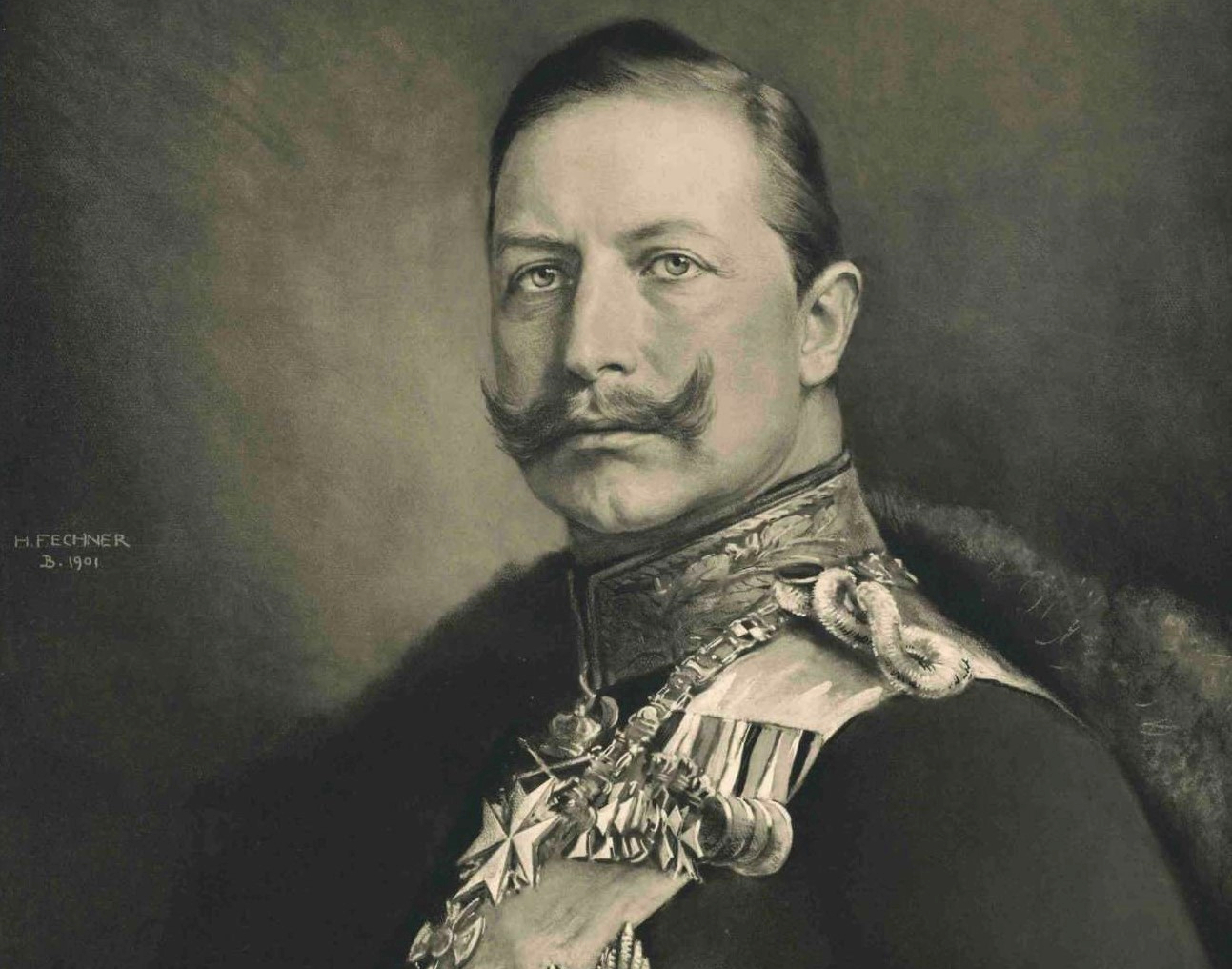 Hans Fechner, Wikimedia Commons
Hans Fechner, Wikimedia Commons
33. He Got A Fishplate To The Face
The same official remarked, “On the temple or in the eye the blow could have been devastating”. Fortunately, for Wilhelm II however, the sharp object had simply been a fishplate. Moreover, the assailant proved to be little more than a mad man. But, just around that corner, there were even bigger scandals that Wilhelm II couldn’t ignore.
 Historical materials, Wikimedia Commons
Historical materials, Wikimedia Commons
34. He Faced The Scandal Of A Lifetime
Between the years 1906–1909, Wilhelm II’s administration became embroiled in a scandal that nearly toppled the crown from his head. The journalist Maximilian Harden published scandalous accusations of gay activity involving “ministers, courtiers, and army officers” in Germany.
The most disastrous accusation, however, was a lot closer to home.
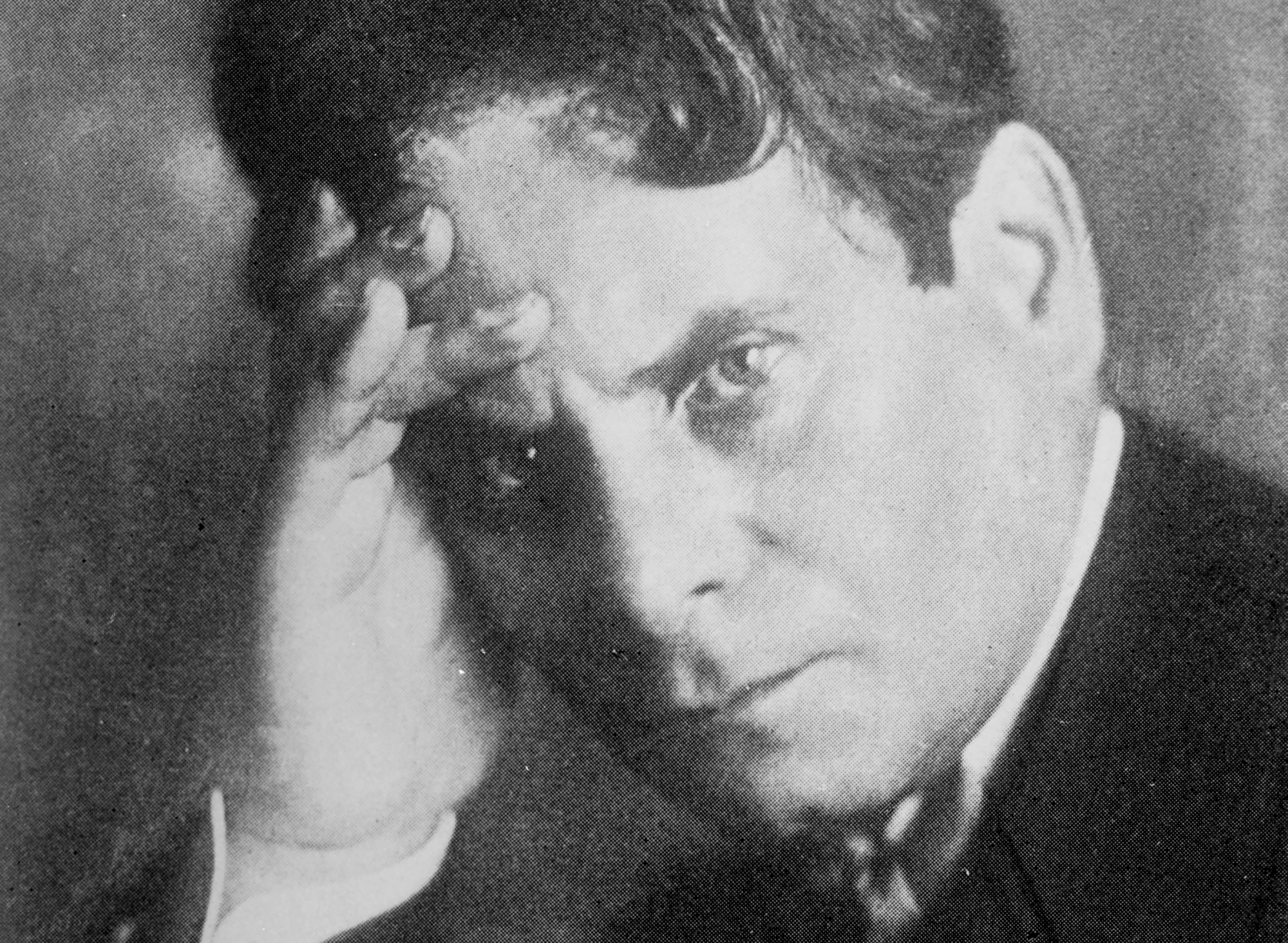 Rudolf Dührkoop, Wikimedia Commons
Rudolf Dührkoop, Wikimedia Commons
35. His Cabinet Fell Apart Around Him
Harden’s biggest target was Wilhelm II’s closest friend and advisor, Prince Philipp zu Eulenburg. As the scandal raged on in the papers, Wilhelm II’s closest allies found themselves embroiled in trials and shameful resignations—some even took their own lives.
But when Eulenberg had to resign over the scandal, it proved to be more than Wilhelm II could take.
36. He Might Have Been Gay
After Eulenberg’s resignation, Wilhelm II experienced a nervous breakdown. The dramatic reaction has led many historians to believe that the last German Kaiser was a “deeply repressed [gay man]” who “never came to terms with his feelings for Eulenberg”.
Even before that scandal ended, however, Wilhelm II cooked up another one.
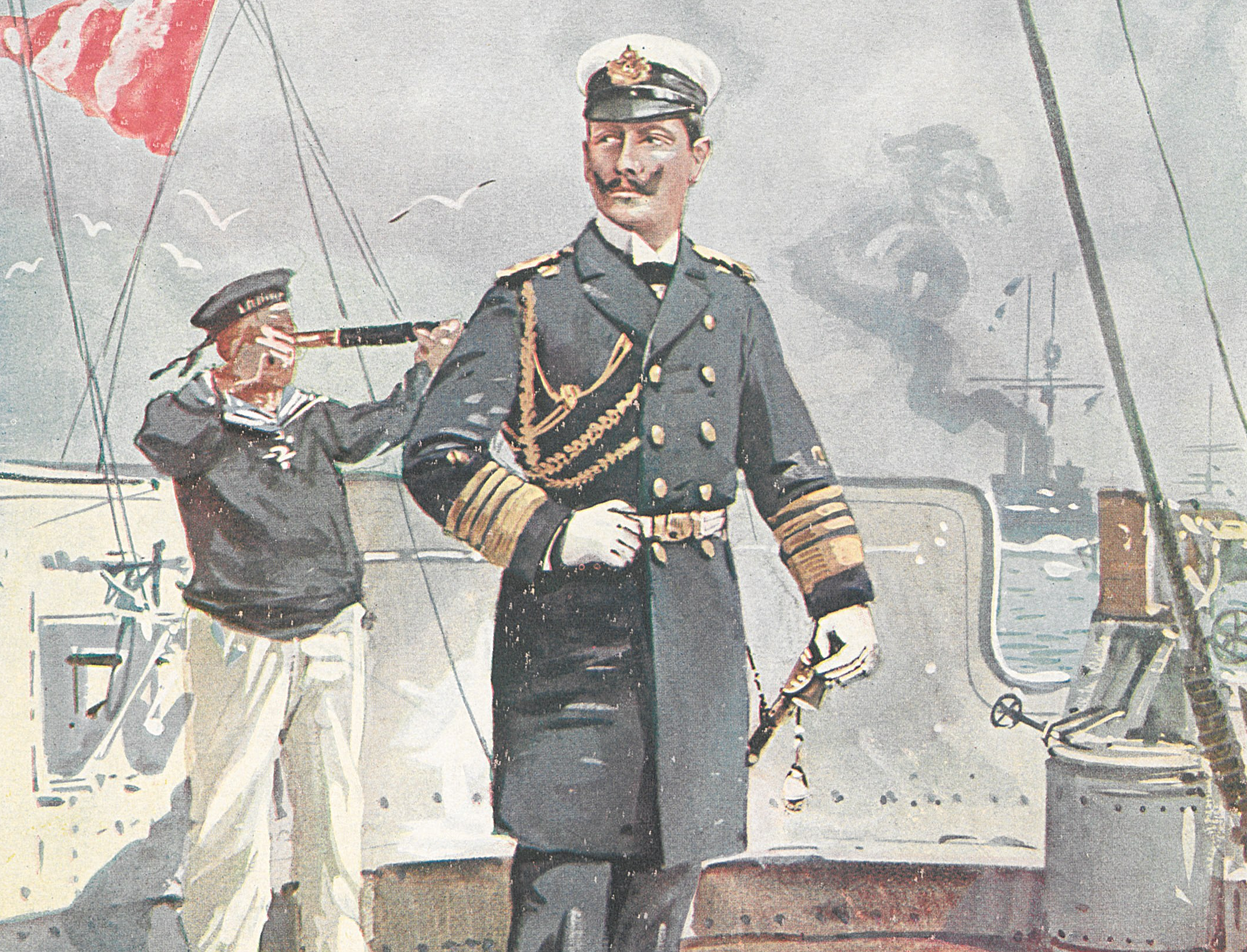 Unknown Author, CC BY-SA 3.0, Wikimedia Commons
Unknown Author, CC BY-SA 3.0, Wikimedia Commons
37. He Was Really Bad At Interviews
In 1908, Wilhelm II gave an interview to the London-based newspaper, The Daily Telegraph. During the interview, he attempted to improve the already strained Anglo-German relationship. But, his usually prickly personality, erratic behavior, and emotional outbursts got the better of him.
What ensued was an antagonistic rant against the English that brought Europe one step closer to all-out conflict.
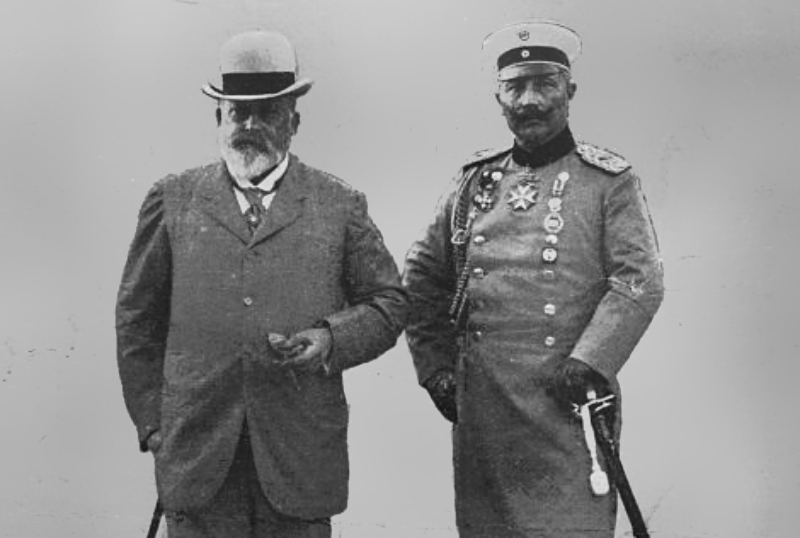 Unknown author, Wikimedia Commons
Unknown author, Wikimedia Commons
38. He Insulted Every Other World Power
During the interview, Wilhelm II made comments such as, “You English are mad, mad, mad as March hares”. He then went on to blame the French and the Russians for attempting to coax Germany into a conflict and asserted that Germany’s naval buildup was aimed at Japan, not Britain.
The blowback at home, however, was even worse than abroad.
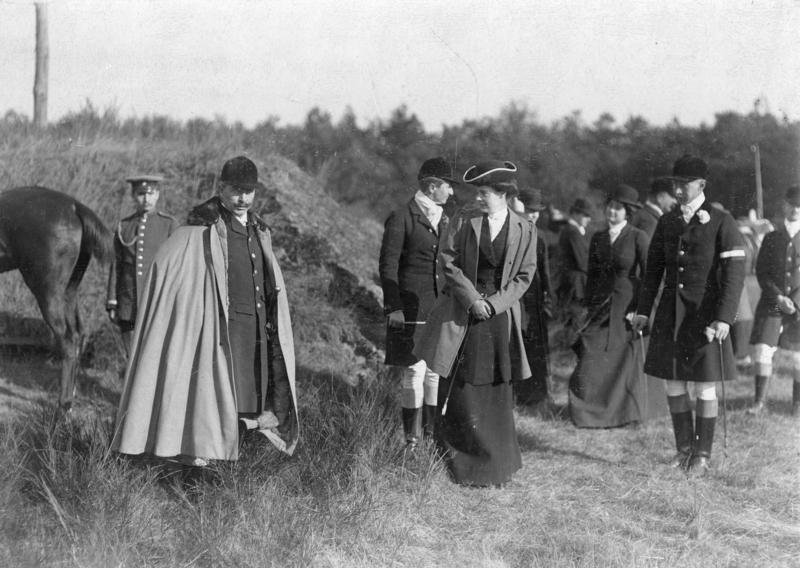 Bundesarchiv Bild, CC BY-SA 3.0 DE, Wikimedia Commons
Bundesarchiv Bild, CC BY-SA 3.0 DE, Wikimedia Commons
39. He Fell Into A Deep Depression
The fallout from The Daily Telegraph crisis was worse than Wilhelm II could have imagined. Powerful people in Germany demanded his resignation. While he remained defiant and retained his crown, his once unshakable confidence took a severe hit, spiraling him into a depression from which he never fully recovered.
But the world was about to have bigger problems on its plate.
40. He Felt Betrayed By His Cousins
With the fatal attack on Archduke Franz Ferdinand, Europe burst into all-out conflict—and the battle lines were drawn along the roots of Wilhelm II’s family tree. The Kaiser, ever jealous, blamed it all on his cousins. He lamented, “To think that George and Nicky (Nicholas II) should have played me false! If my grandmother had been alive, she would never have allowed it”.
Nevertheless, he was determined to make his cousins respect him.
 Walter Tausch, CC BY-SA 3.0, Wikimedia Commons
Walter Tausch, CC BY-SA 3.0, Wikimedia Commons
41. He Was Certain Of German Victory
In August 1914, with the fighting freshly underway, Wilhelm II made a bold and confident prediction. He proclaimed, “I am firmly confident that, with the help of God, the bravery of the German Army and Navy and the unquenchable unanimity of the German people during those hours of danger, victory will crown our cause”.
But, behind closed doors, he was singing a different song.
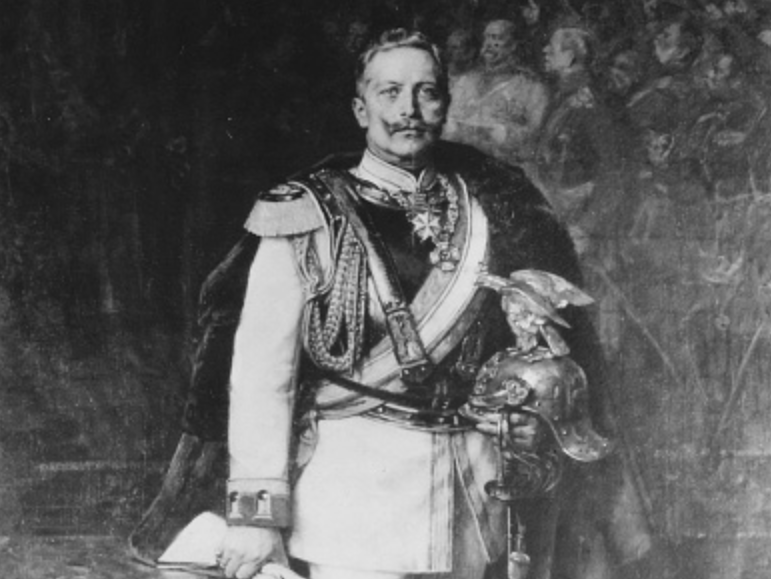 Unknown Author, Wikimedia Commons
Unknown Author, Wikimedia Commons
42. He Was Full Of Hot Air
Wilhelm II’s optimism (or bravado) was short-lived. Just three months after his confident declaration, he convened his cabinet to deliver grim news: Germany couldn't win. But that's not the worst part. Despite this realization, he allowed the fighting to continue for another four brutal years, giving rise to a less than flattering epithet.
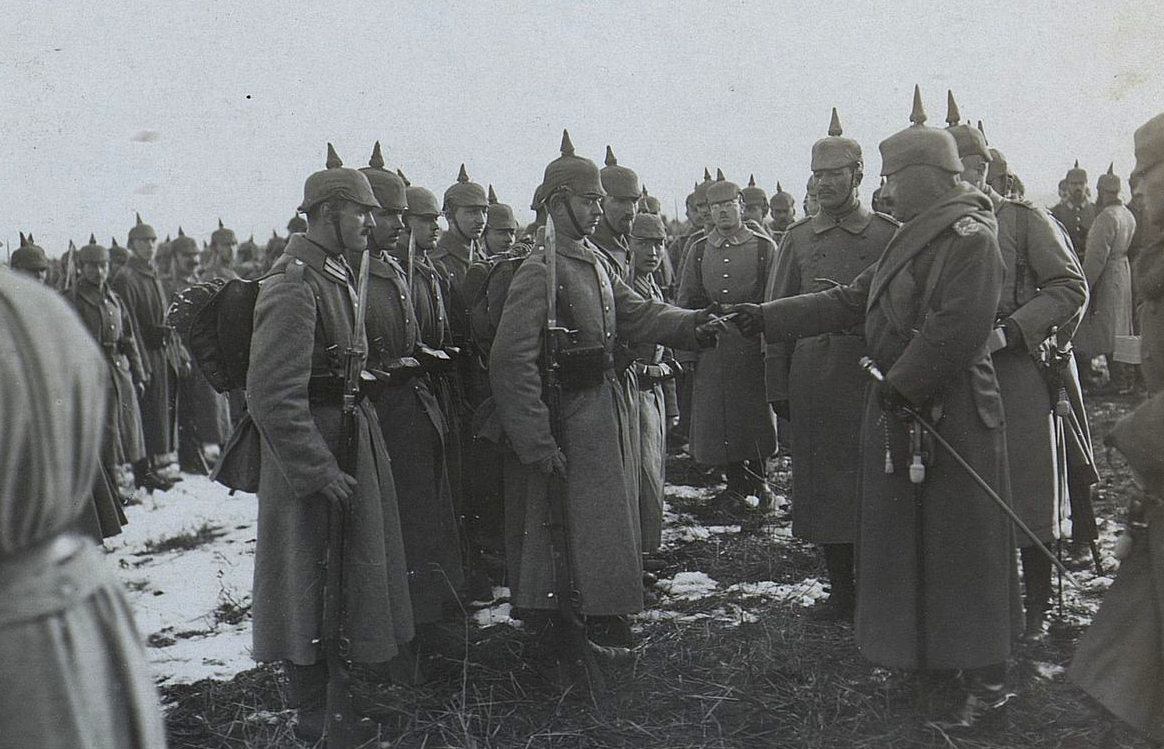 Unknown Author, Wikimedia Commons
Unknown Author, Wikimedia Commons
43. He Was The “Shadow” Kaiser
Just when his country needed him most, Wilhelm II retreated into the shadows. Historian John Röhl described this time in Wilhelm II’s reign, saying: “The man who in peace had believed himself omnipotent became in [conflict] a 'shadow Kaiser,' out of sight, neglected, and relegated to the sidelines”.
But he could not escape the consequences of what he had started.
44. He Had To Abdicate For Peace
By late 1918, when it became obvious that Germany was going to lose, support for Wilhelm II had completely collapsed, both inside and outside of his borders. Finally, when President Woodrow Wilson insisted that Germany do away with the monarchy before any peace negotiations could begin, Wilhelm II had no options left. He agreed to step down. And his year only got worse.
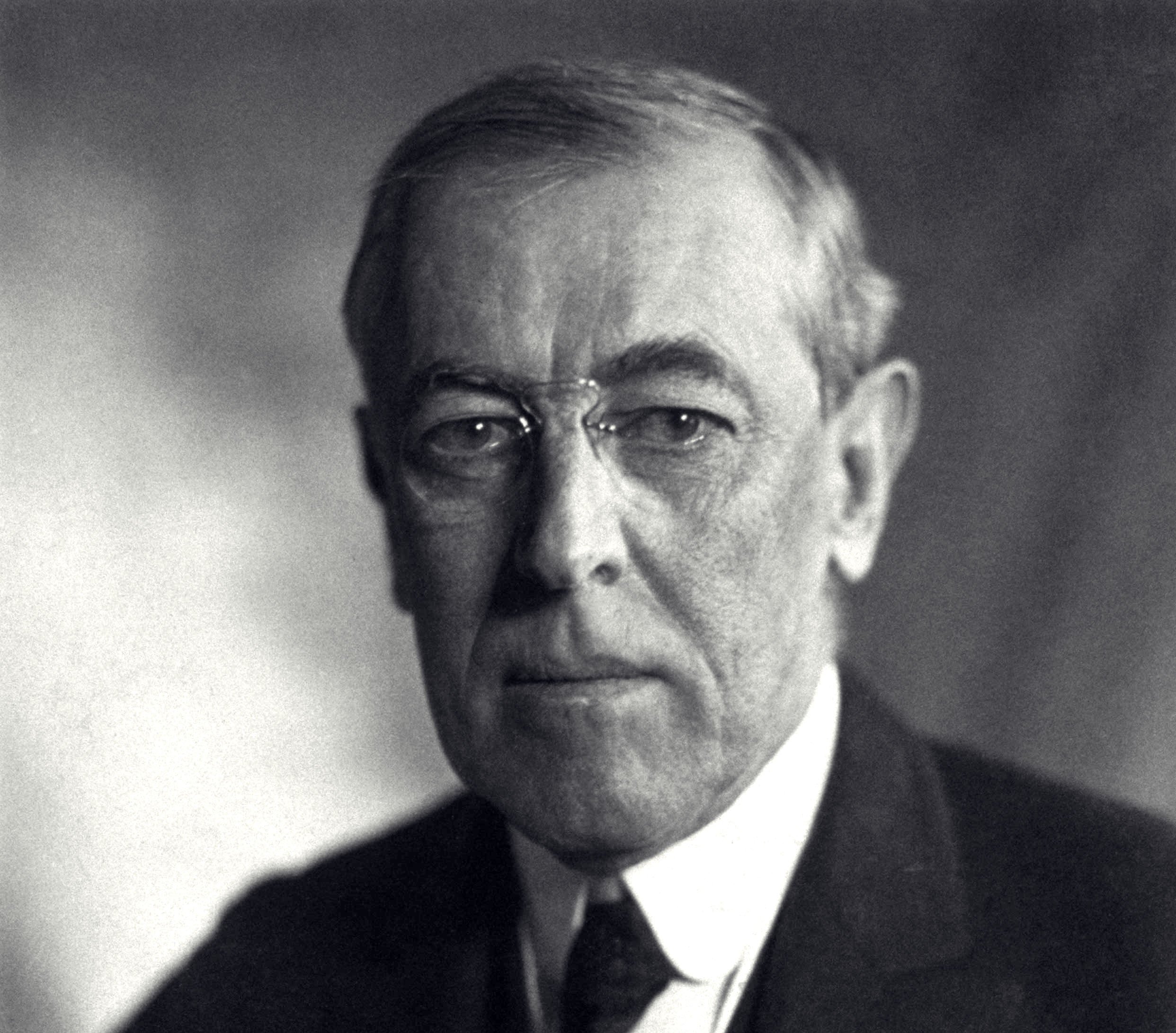 Harris & Ewing, Wikimedia Commons
Harris & Ewing, Wikimedia Commons
45. He Fell Terribly Ill
That same year, as the world hobbled through the last of the fighting of WWI, the devastating Spanish flu pandemic took hold. And Kaiser or not, Wilhelm II was not immune. Adding insult to injury, Wilhelm II contracted the flu and fell terribly ill. Even as he recovered, his hold on power continued to slip away.
Given what happened next, succumbing to the flu would have been a kindness.
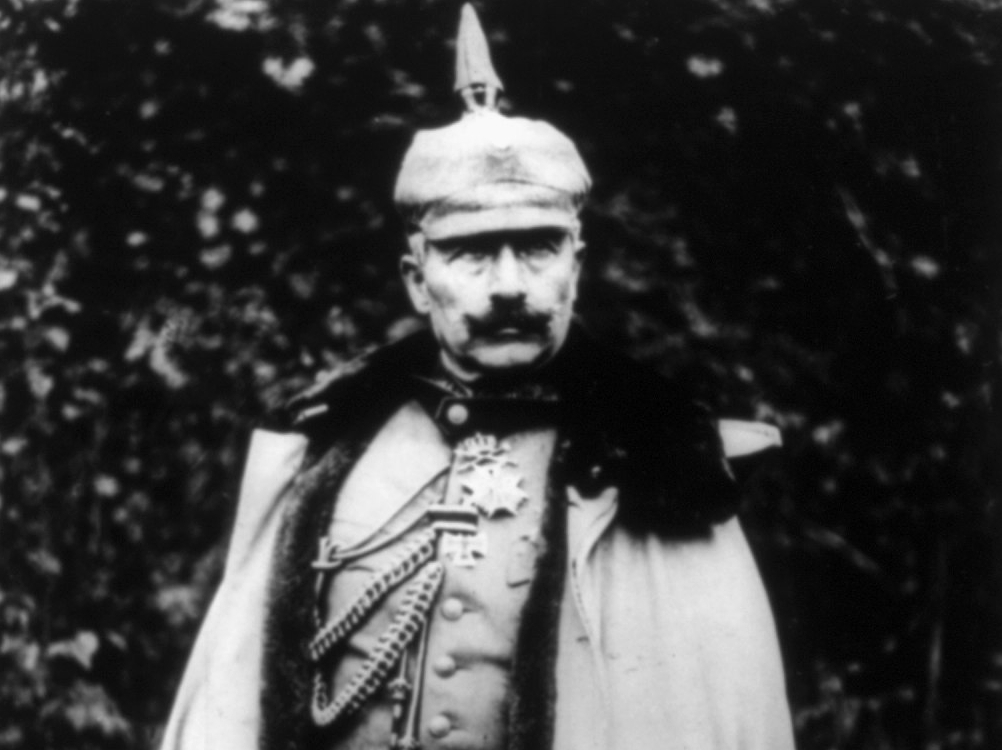 Library of Congress, Wikimedia Commons
Library of Congress, Wikimedia Commons
46. He Lost Everything
Wilhelm's reign officially ended on November 9, 1918, when he abdicated after losing the support of his last allies. He swiftly boarded a train, crossing into the Netherlands and effectively going into exile. His departure marked the end of the German Empire and the centuries long rule of the Hohenzollern dynasty. But what he wasn’t in the clear yet.
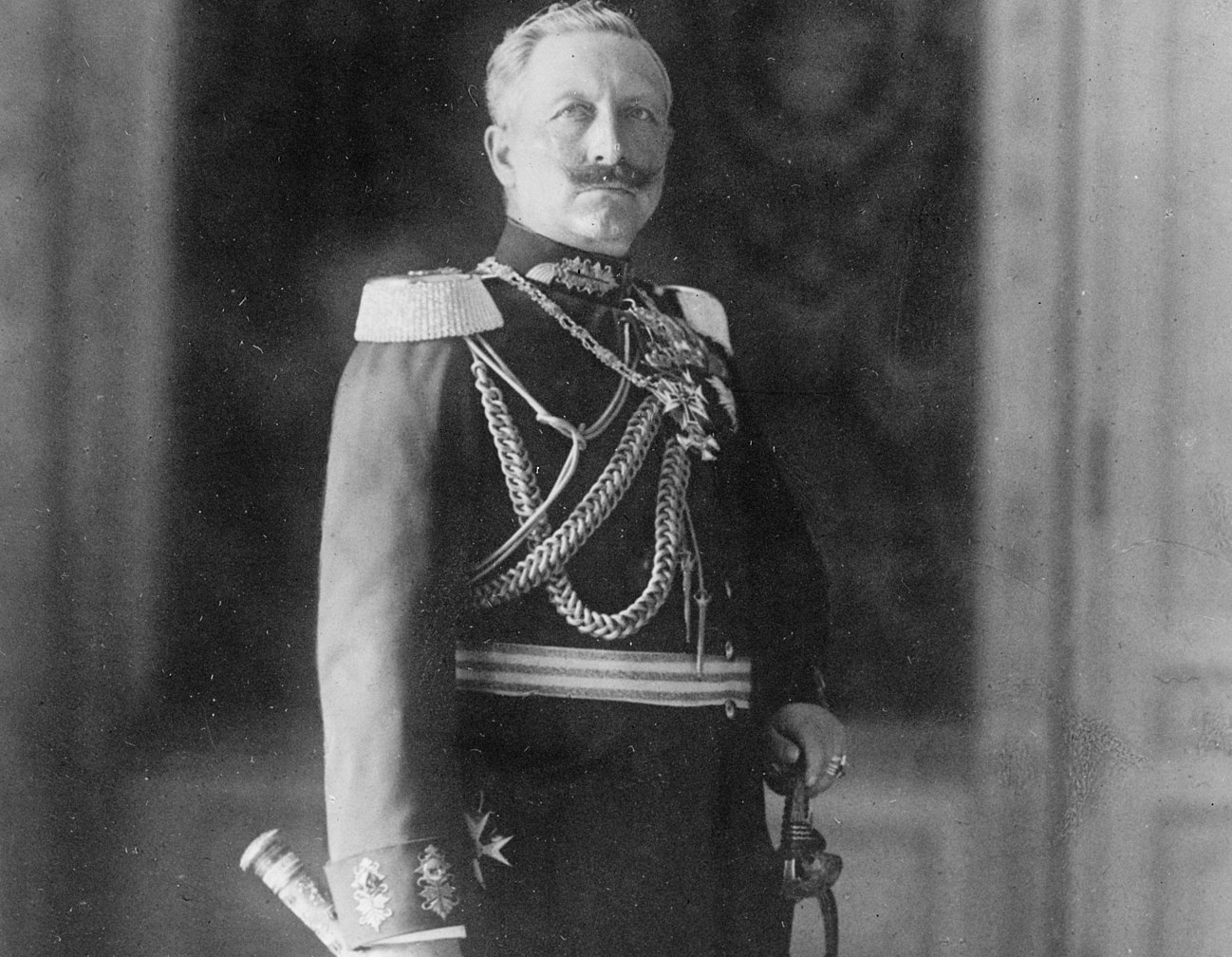 Harris & Ewing Collection, Wikimedia Commons
Harris & Ewing Collection, Wikimedia Commons
47. His Cousin Publicly Denounced Him
With all of the carnage from WWI, the victors wanted someone’s head a pike (figuratively). In a striking display of familial disdain, King George V of England wrote of his cousin Wilhelm, branding him "the greatest criminal in history”. Despite his harsh words, George V opposed calls to “hang the Kaiser”.
In fact, he was more Wilhelm II’s friend than the deposed Kaiser realized.
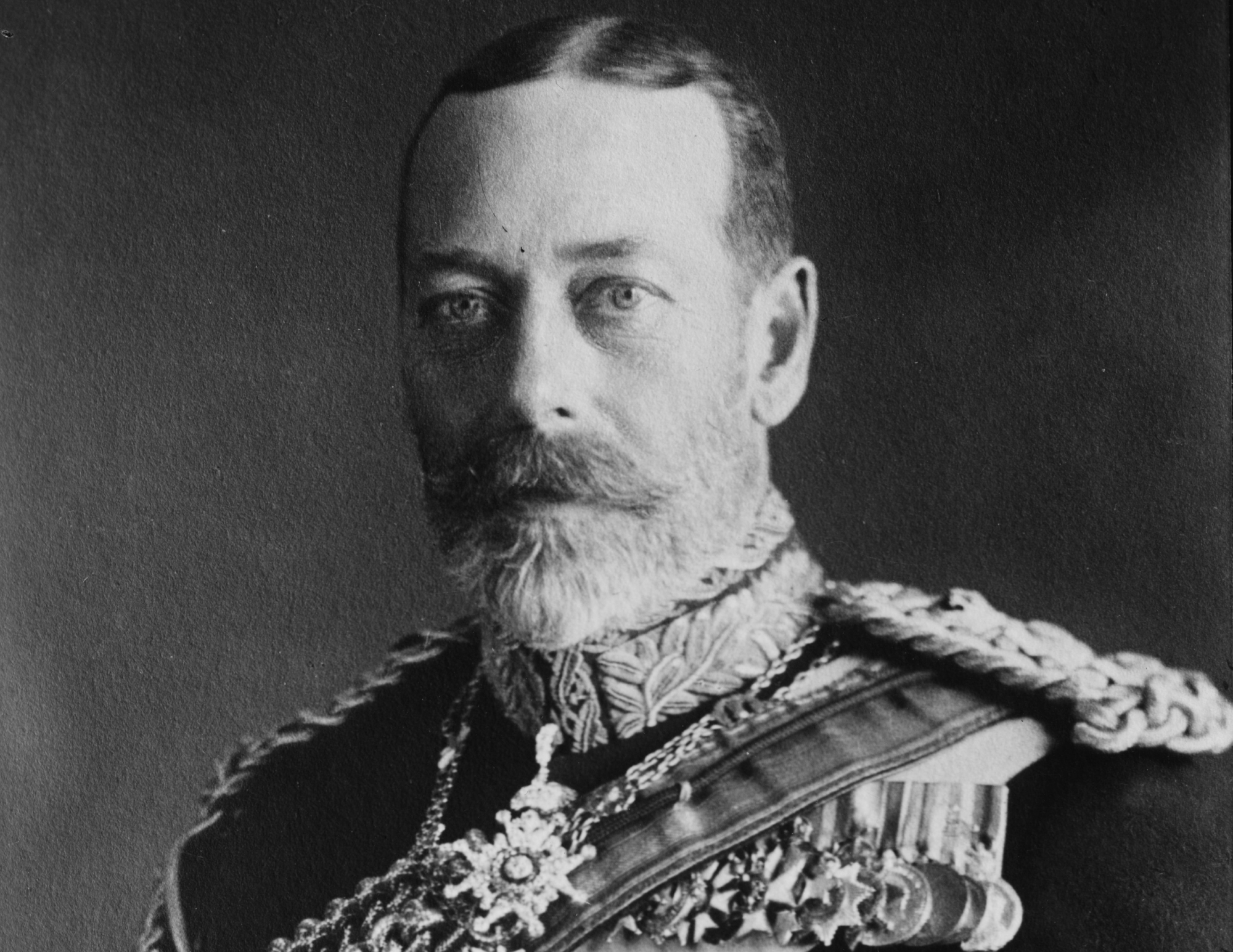 Bassano Ltd, Wikimedia Commons
Bassano Ltd, Wikimedia Commons
48. He Had Some Unexpected Friends
Fortunately for Wilhelm II, Europe was weary and there was little appetite for further bloodshed. Although British authorities formally requested his extradition to face justice, they secretly urged the Dutch to refuse the extradition order. The Netherlands, seeking to avoid entanglement in the post-conflict retribution, happily complied.
Life after the throne actually proved to be quite peaceful for Wilhelm II.
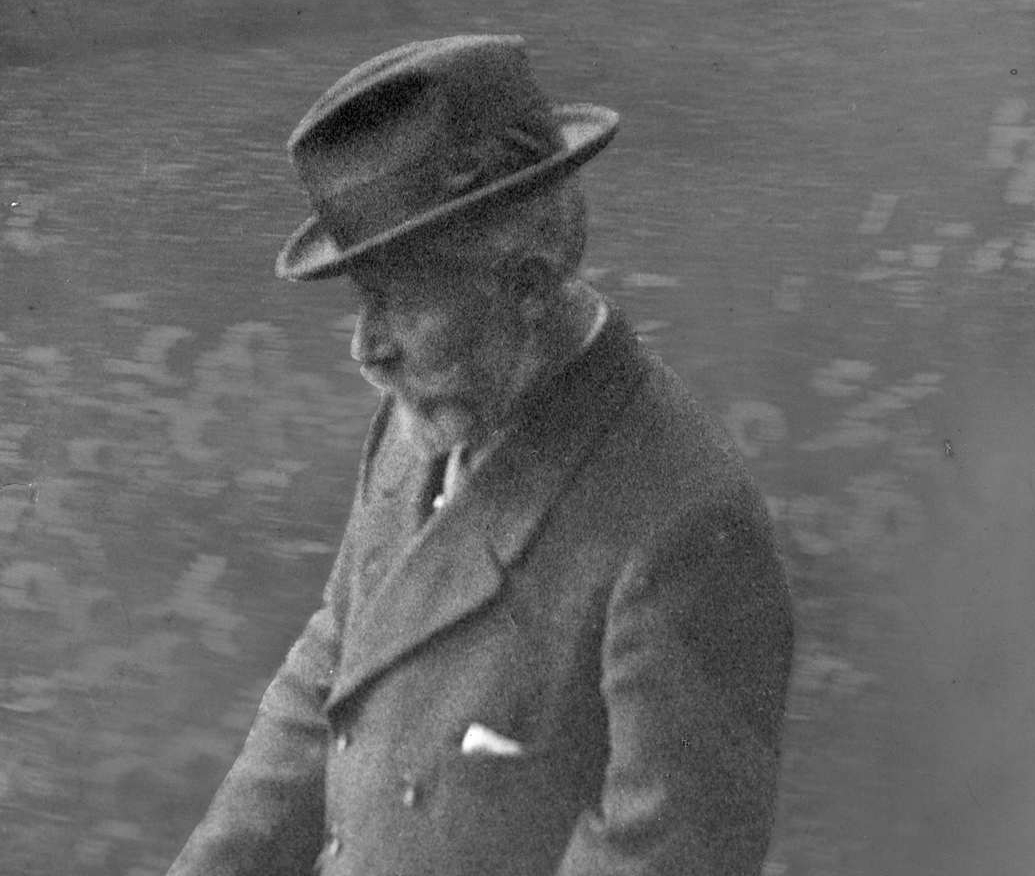 Ruben Velleman (1894-1945), Wikimedia Commons
Ruben Velleman (1894-1945), Wikimedia Commons
49. He Settled Into A Peaceful Life
Wilhelm II purchased Huis Doorn, a palatial manor in the Netherlands, where he stayed for the remainder of his life. Remarkably, the Weimar Republic allowed him to take an extraordinary amount of personal belongings: twenty-three railway wagons of furniture, twenty-seven filled with various packages, one with a car, and another with a boat.
But Karma couldn't let Wilhelm escape that easily.
 Unknown Author, Wikimedia Commons
Unknown Author, Wikimedia Commons
50. He Lost His Youngest Son
Not every member of Wilhelm II’s household adjusted to civilian life as easily as he did. His youngest son, Prince Joachim, fell into a deep depression following the loss of his titles and status. After his wife divorced him, Joachim made the tragic decision to end his own life. Somehow, Wilhelm II made it all about him.
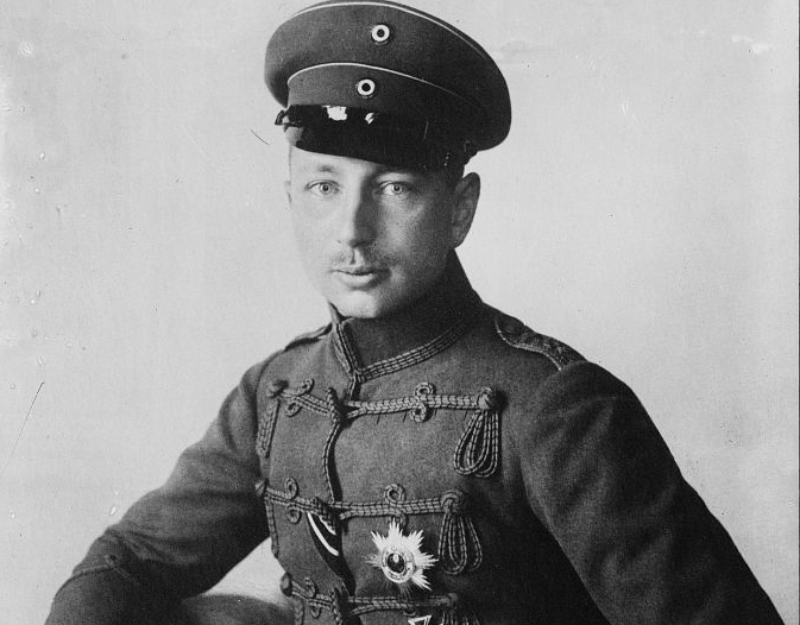 Library of Congress, Wikimedia Commons
Library of Congress, Wikimedia Commons
51. He Could Only Think Of Himself
Wilhelm II received the news of his son’s demise with anger instead of sadness. Furious, he lamented, “That the oaf should have done this, too, to us and especially to his mother!” His half-hearted attempts to conceal the nature of Joachim’s demise from Dona failed and she passed from grief shortly thereafter.
But a deposed Kaiser is never single for long.
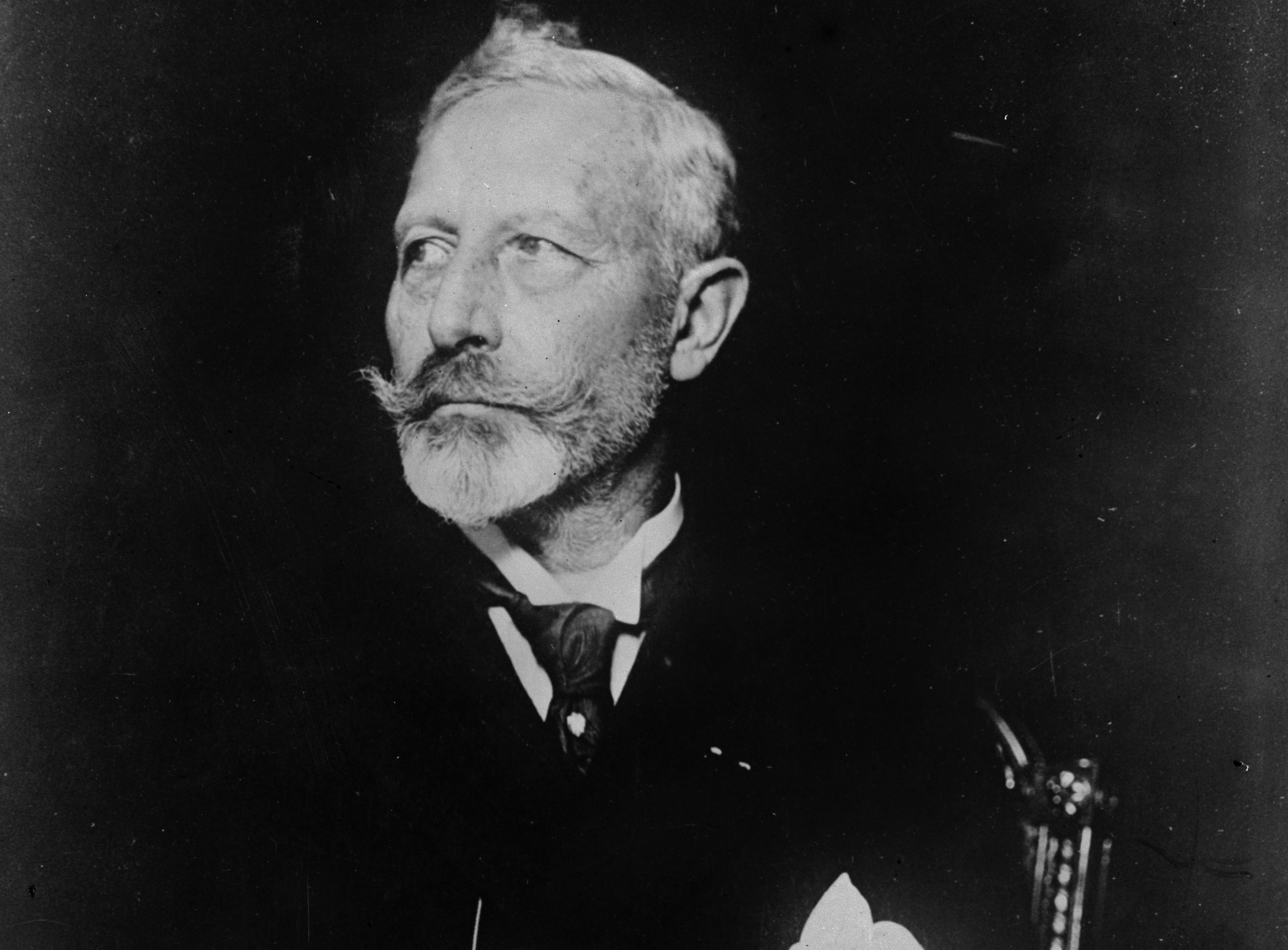 Topical Press Agency, Getty Images
Topical Press Agency, Getty Images
52. He Found Love…Again
Only months after his first wife’s passing in 1921, Wilhelm II found love again. He received an unexpected birthday greeting from the son of the late Prince Johann George Ludwig Ferdinand August Wilhelm of Schönaich-Carolath. Wilhelm II fell for the boy’s mother, Princess Hermine Reuss of Greiz, whom he invited to Doorn.
By the end of 1922, the 63-year-old former Kaiser had tied the knot to the Princess (some 30 years his junior) despite protests from everyone around him. In all fairness, she seemed to have a calming effect on him.
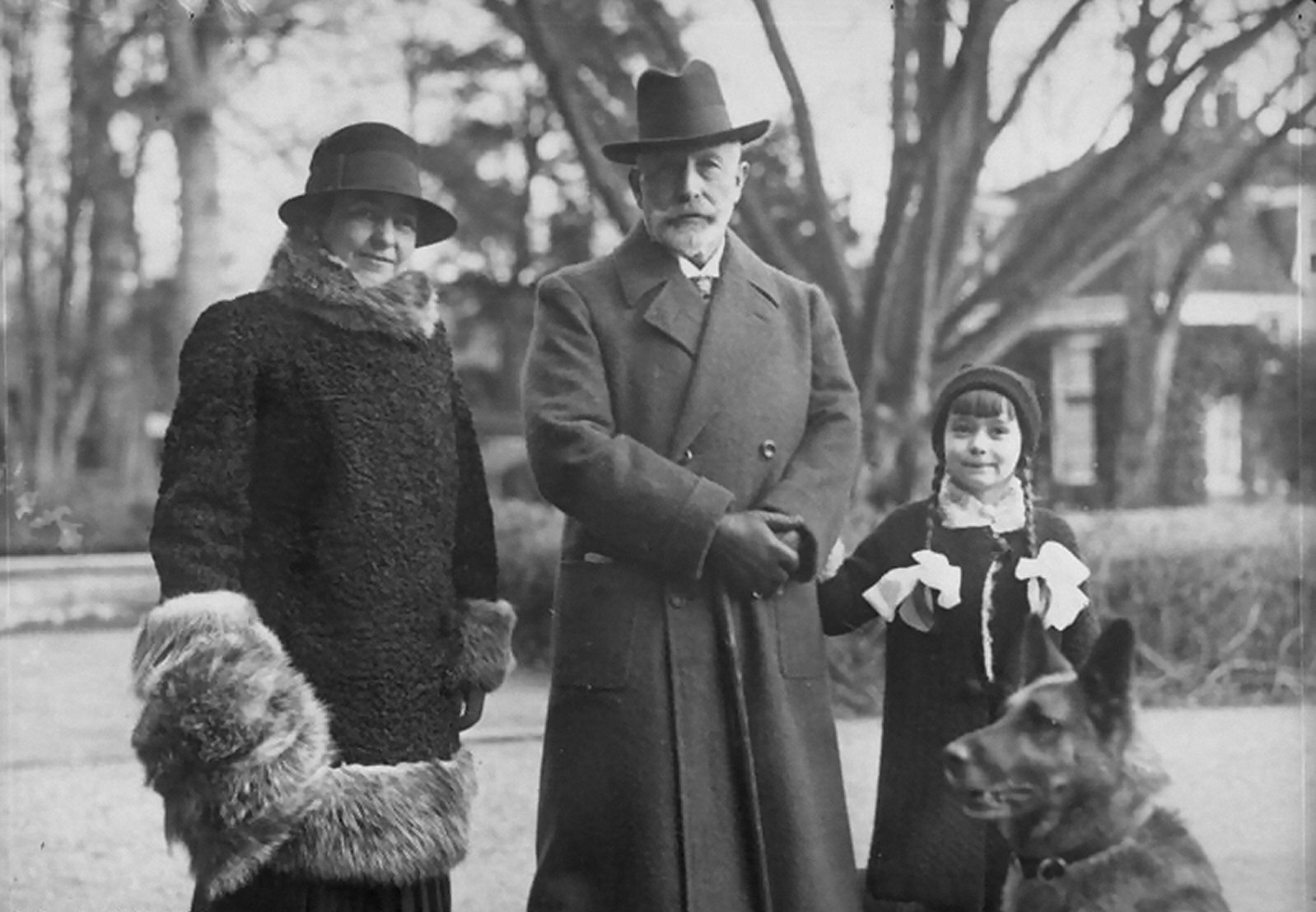 Bundesarchiv Bild, CC BY-SA 3.0 DE, Wikimedia Commons
Bundesarchiv Bild, CC BY-SA 3.0 DE, Wikimedia Commons
53. He Followed His Cousins' Styles
For the last twenty years of his life, Wilhelm II maintained a semblance of his former regal lifestyle. He entertained guests of high social standing and kept abreast of European affairs. He even grew a beard and allowed his iconic mustache to droop, adopting a style reminiscent of his cousins, King George V and Tsar Nicholas II.
But he wanted his old life back.
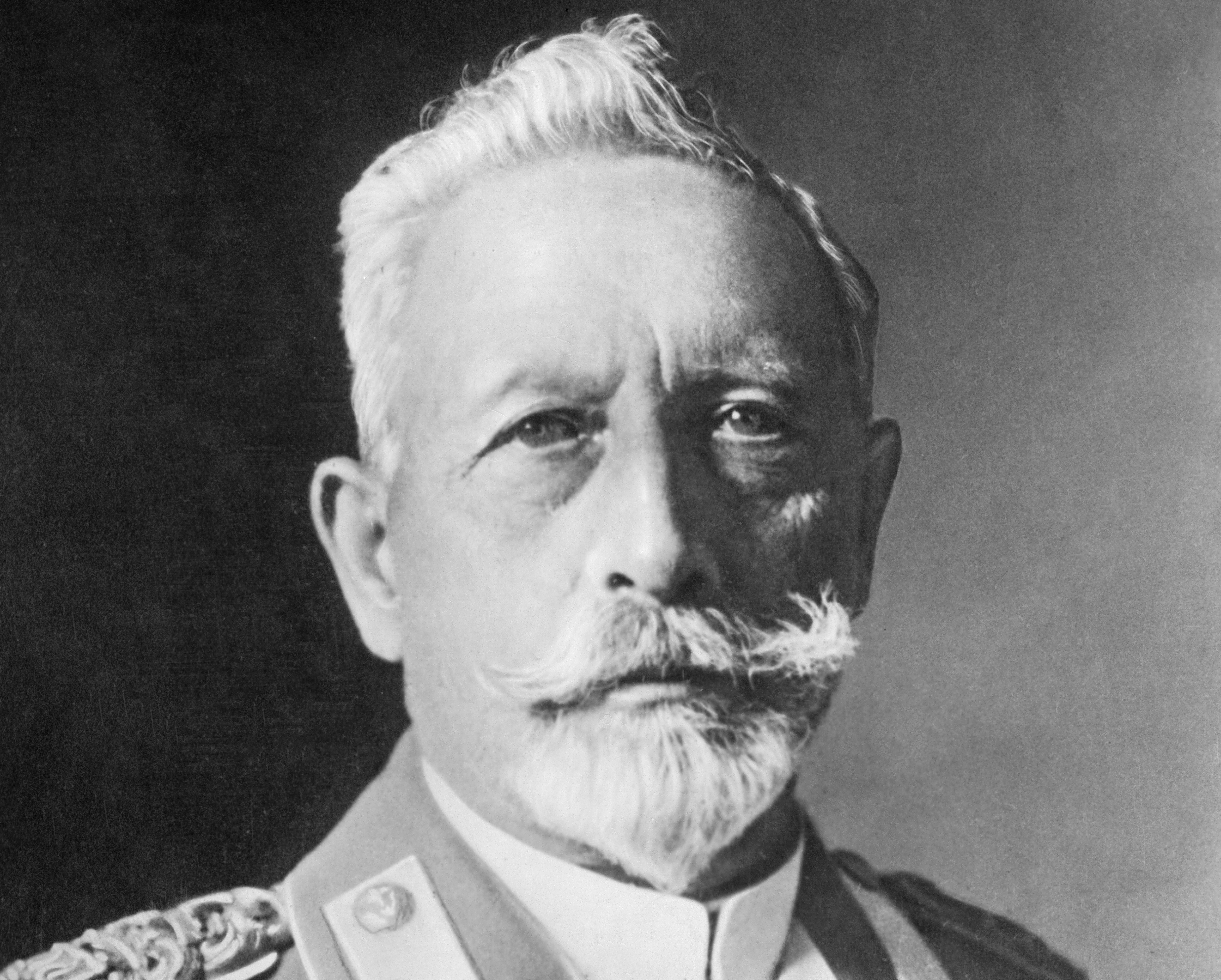 ullstein bild Dtl., Getty Images
ullstein bild Dtl., Getty Images
54. He Was Not A Fan Of The Third Reich
Wilhelm II hoped that the rise of the Third Reich might restore his family to power. However, after the Night of the Long Knives, he said, "We have ceased to live under the rule of law and everyone must be prepared for the possibility that the [Third Reich] will push their way in and put them up against the wall!”
But Wilhelm was nothing if not changeable.
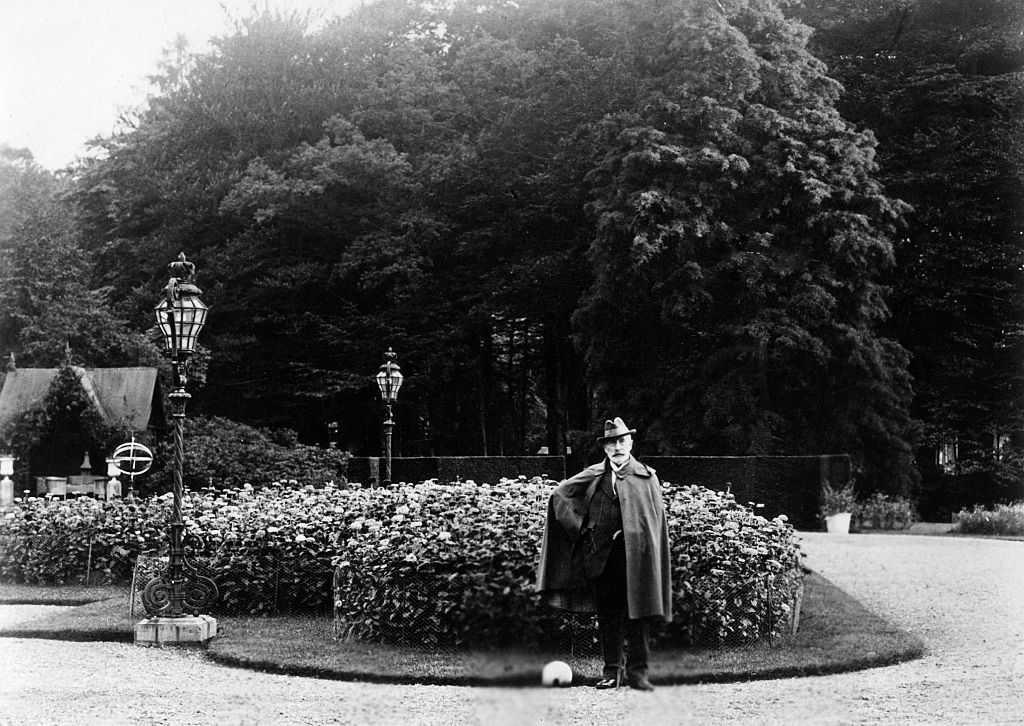 ullstein bild Dtl., Getty Images
ullstein bild Dtl., Getty Images
55. He Was Full Of Praise For The Führer
When the Third Reich began racking up early victories at the outbreak of WWII, Wilhelm II changed his tune. After the Netherlands surrendered, he wrote to the Führer, saying, “I congratulate you and hope that under your marvelous leadership the German monarchy will be restored completely”.
Utterly bemused, the führer commented to his valet, “What an idiot!”
 Bundesarchiv, CC BY-SA 3.0 DE, Wikimedia Commons
Bundesarchiv, CC BY-SA 3.0 DE, Wikimedia Commons
56. He Claimed Responsibility For Germany’s Victories
As the Third Reich continued to score victories across Europe, Wilhelm II sent more telegrams to the Führer—all without response. Feeling jilted, he wrote to an American journalist, bragging that “the brilliant leading Generals in this [conflict] came from my school, they fought under my command in the [WWI] as lieutenants, captains and young majors”.
But, by that time, bluster was all the deposed Kaiser had left.
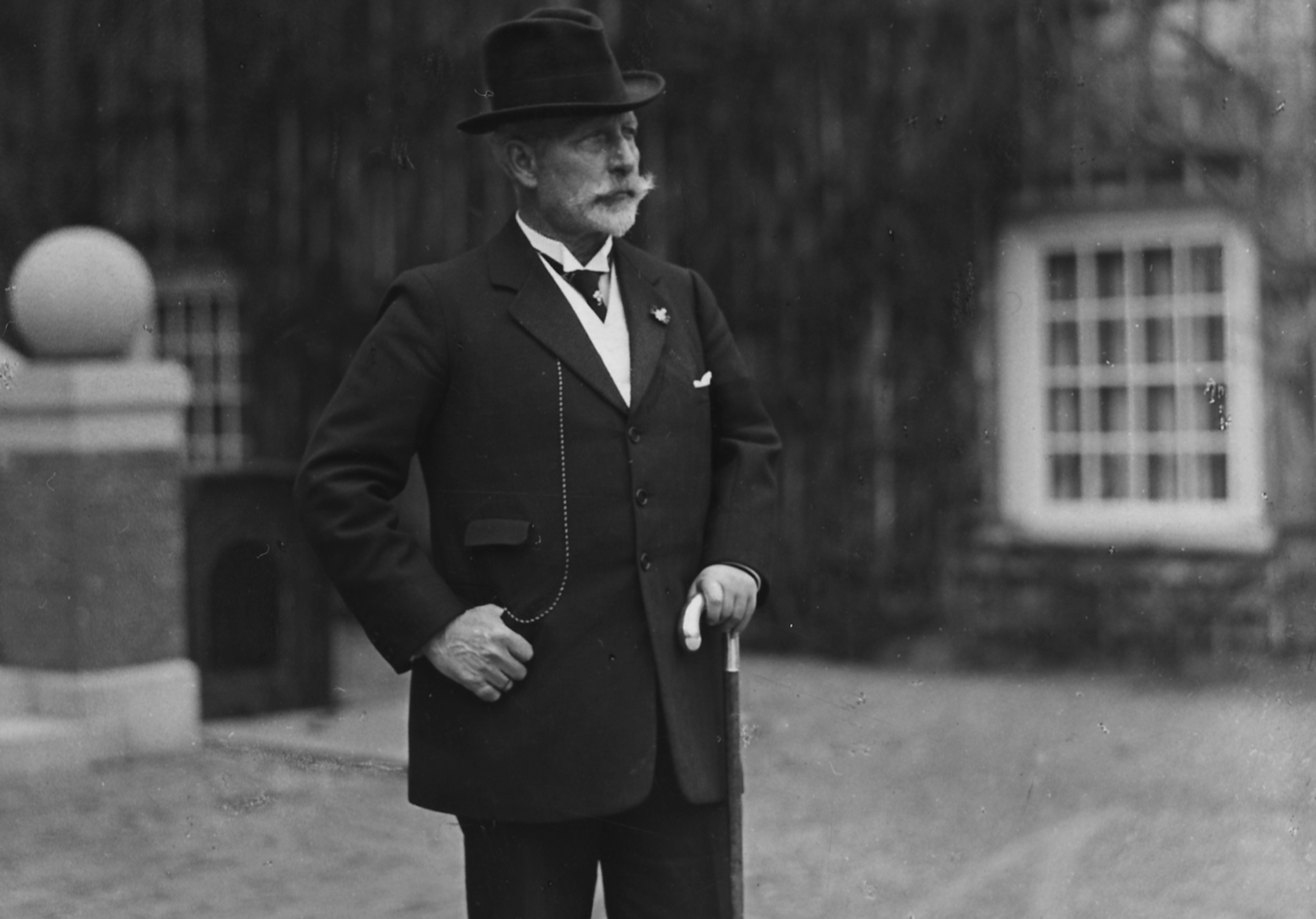 Pictorial Parade, Getty Images
Pictorial Parade, Getty Images
57. He Never Made It Back To Germany
In June 1941, the former Kaiser succumbed to a pulmonary embolism. Surprisingly, the Third Reich respected his wishes that his body not be taken back to Germany until and unless the monarchy was restored. Wilhelm II was buried in a mausoleum on the grounds of Huis Doorn, where German monarchists still gather today to pay their respects.
58. His Personality Caused WWI
In the end, it was Wilhelm II’s all-consuming jealousies and turbulent temper that drove Europe into one of the bloodiest conflicts in its history. As one historian wrote, Wilhelm II was “desperate for applause and success—as Bismarck said early on in his life, he wanted every day to be his birthday—romantic, sentimental and theatrical, unsure and arrogant, with an immeasurably exaggerated self-confidence and desire to show off”.
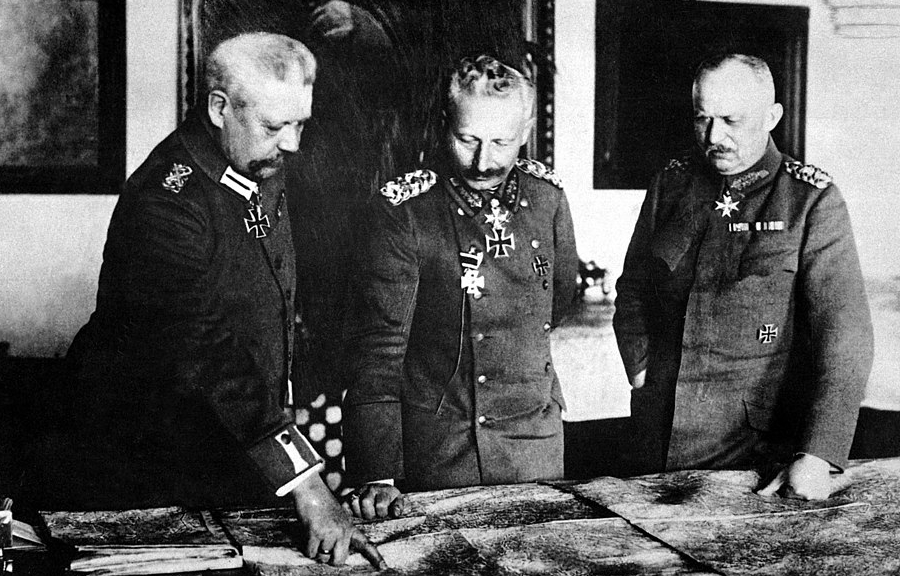 Robert Sennecke, Wikimedia Commons
Robert Sennecke, Wikimedia Commons
59. He Was A Little Damaged
The difficult childbirth left Wilhelm II with a crippled arm, but some of his injuries were far more insidious. Historians have agreed that the excessive use of chloroform and the temporary state of hypoxia left Wilhelm II with lifelong brain damage. The neurological effects are believed to be the source of his "erratic behavior, limited attention span, and impaired social abilities”.


